#and in the wikipedia section on his death:
Photo
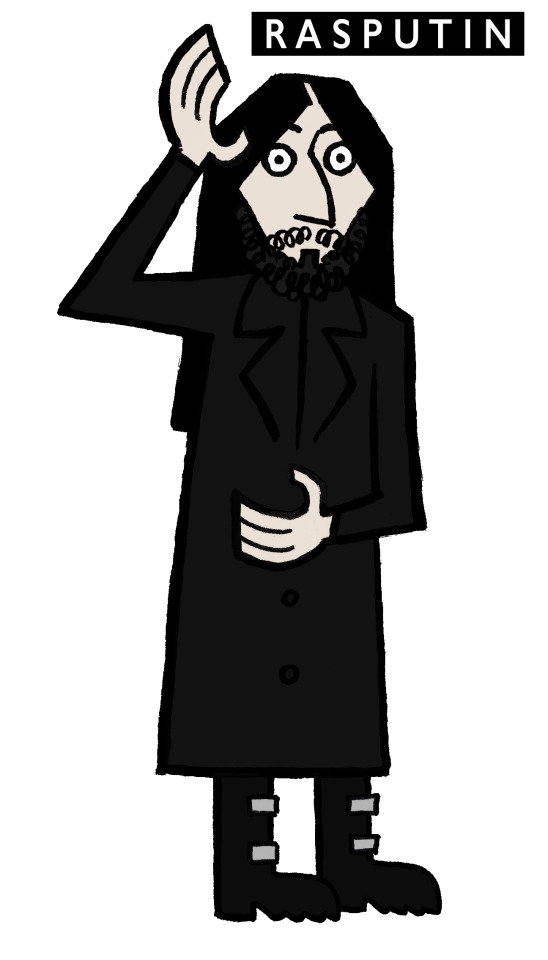
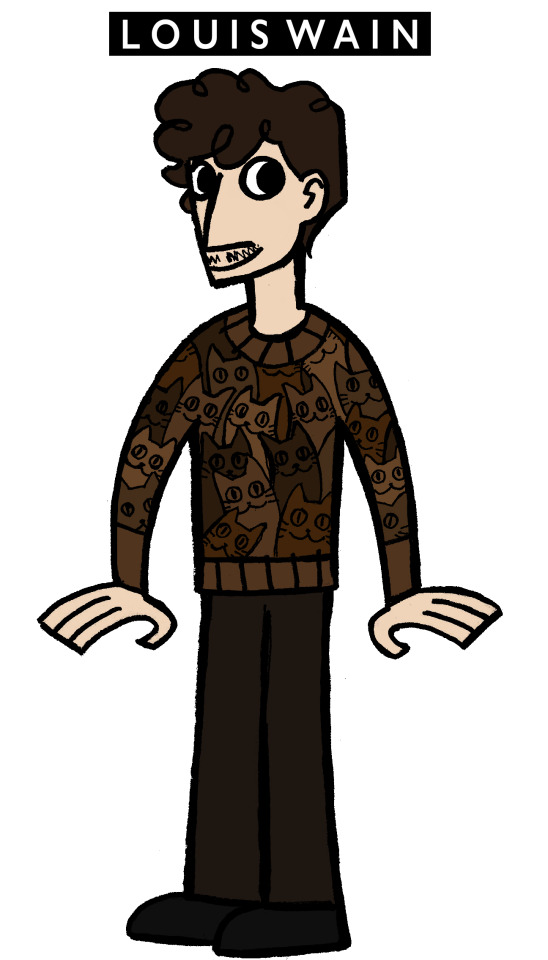


some clone high ocs bc I am cringe but I am free. and bc im excited for the upcoming reboot :)
just the line art:

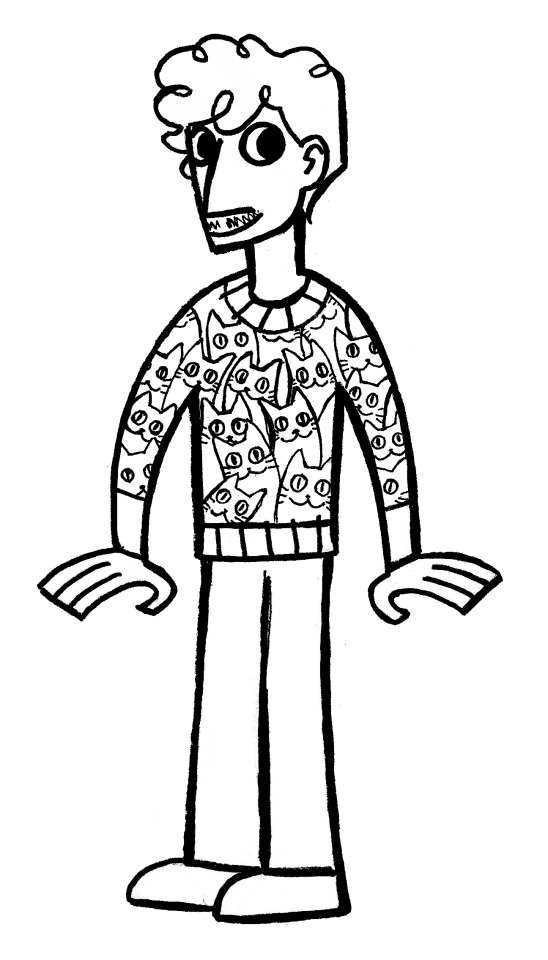


#art#fan art#clone high#ink#line art#digital art#these ppl are wildly different lol i just chose whoever i was intrested in for whatever reason#that ive also not seen clone high art of yet#hc andersens clone can hopefull have the gay romance the original anderson wanted :')#i was reading his wikipedia page a while back and its the sweetest thing ever 😭#like what he wrote here:#''The Hereditary Grand Duke walked arm in arm with me across the courtyard of the castle to my room kissed me lovingly asked me always to#love him though he was just an ordinary person asked me to stay with him this winter ... Fell asleep with the melancholy happy feeling that#I was the guest of this strange prince at his castle and loved by him ... It is like a fairy tale.''#and in the wikipedia section on his death:#''Shortly before his death Andersen had consulted a composer about the music for his funeral saying:#'Most of the people who will walk after me will be children so make the beat keep time with little steps.'''#jesus man 😭
955 notes
·
View notes
Text
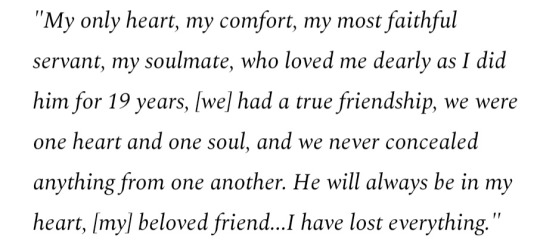
— Emperor Charles VI's diary entry on Count Althann's death
[text: "My only heart, my comfort, my most faithful servant, my soulmate, who loved me dearly as I did him for 19 years, [we] had a true friendship, we were one heart and one soul, and we never concealed anything from one another. He will always be in my heart, [my] beloved friend..I. have lost everything."]
#this is like. incredibly niche.#but also hopefully a quote one can look at without context and still feel emotional damage about#idk. i think about this quote probably at least once a week and then have to stare at it and cry a bit#its just GOD. yknow??????#theres this one paper(which i linked) that i originally read as research for the AU#but i go back to it probably twice a month to reread it bcs im so !!!! abt it#i think its cause charles vi is just not that relevant but is relevant to me so to have this paper abt his personal relationships is very !#its both nice as ref for the au but also very interesting to hear about historical queer relationships/dynamics#the sections about him and his wife are very endearing as well#but god like him and count althann. im literally so invested in this 300 year old relationship#this is obviously from his death which is incredibly depressing and heart wrenching to me#but the other things he wrote about althann in his diary are very sweet to me#they were inseparable to the point of often sleeping in the same bed and charles called him his 'eternal love'#AND ON ALTHANN'S DE WIKIPEDIA PAGE IT LITERALLY CALLS HIM THE EMPEROR'S FAVORITE#anyways literally every part of this quote absolutely destroys me but especially how he refers to althann and then the ending#and its interesting to me bcs apparently his diary entries were usually pretty to the point#but when various people in his as althann died he would write these extremely emotional entries that are so </3#if you have any questions abt their dynamic pls i will talk abt them 🥰🥰 i find it fascinating#theres a book about his diary but its in german and 500 pages and kinda hard to get hold in but maybe one day!!!#also in AU contexts: althann and charles vi would be mark and seb so take that as you will 🤭😭#as i said this is great for ref but also made me sooooo fucking invested in him#i have no idea how to tag this#historical#holy roman empire#emperor charles vi#catie.rambling.txt#historical quotes#habsburg#habsburg monarchy#ah wow if only my german prof could see me now. fucking...habsburg posting. why am i like this
20 notes
·
View notes
Note
Oh hey, Neil. Black trans man here! That article you linked in one of your recent posts on Rachel's passing (may she rest in peace) says "rest in power", which is actually a black exclusive term we created to talk about black people murdered due to police brutality/racism.
I'm not trying to cancel anyone! I'm just, you know, spreading awareness. I don't know if you're going to read this or reply, but that's what I had to say.
And my condolences.
Hi, I'd respectfully point you to the Wikipedia article on Rest in Power, and its origins and what it's used for, particularly the section on Protesting Transphobia,
According to Wikipedia,
Rest in power (a variation on rest in peace) is an expression used to mourn, remember or celebrate a deceased person, especially someone who is thought to have struggled against systemic prejudice such as homophobia, transphobia, racism or suffered because of it, particularly in black and LGBTQ communities in the United States.[1] It has been used to eulogize victims of hate crimes while protesting the social inequality and institutionalised discrimination that may have led to their deaths. It is a common phrase to use to honor someone’s legacy, though as an activist.
And in the section Protesting Transphobia,
"Rest in power" has since become widely used when mourning the premature deaths of trans people,[7][8] and is a rallying cry on the Transgender Day of Remembrance,[9] observed each year on November 20.[10]
As you observe, the memory of Rachel that I linked to was a memory by Susie Bright. This is Susie's Wikipedia page.
You are welcome to tell her she is not entitled to use Rest in Power about her friend, but I would take this one as a learning experience and let it go.
1K notes
·
View notes
Note
Hi there - I'm trans and Jewish and I'd like to share my perspective on the "trans genocide" thing. I don't think we're experiencing active genocide in the US; that's definitely an extreme and offensive statement to make regarding what's happening. However, I do think that the increasing legislation attacking trans rights and autonomy as well as an increasingly polarized public view of trans people points to the potential for a worse situation that moves closer to genocide.
Now, personally, I live in a state where no laws limiting trans rights have passed. I was able to legally begin my medical transition when I was 15, I've never experienced transphobic violence, and the majority of people around me are supportive of my transition. My experience is similar to most other trans people in my area, with varying degrees of familial support.
But nation wide, we have seen an increase of trans people being murdered, and a massive increase in anti-trans legislation. This legislation aims to strip trans people of their autonomy and privacy. It seeks to put trans children in danger, remove information about what it is to be trans or queer from children's access, and enforce archaic ideas about what it means to be a man or woman.
Most of this is happening because right wing politicians can capitalize on moral outrage and fear to win votes. They're scapegoating trans people instead of trying to improve the lives of their constituents. This is kind of politician's thing, so it's not surprising in any way. However, when those policies successfully do win these politicians support, they'll have to make them more extreme. They'll want to make it illegal to exist as a trans person in public.
Now I'm not saying that that's genocide. I think we're an awfully long way off from trans people being mass arrested for being trans, and then murdered by the state. But we are in a rising climate of fear, and I don't think the trans people calling this the seventh stage of genocide are doing so out of bad faith. I think they're doing that because they are terrified of having their right to take life-saving medication, or have protection in the workplace, or be able to use a bathroom, or have children, or wear what they want to wear taken away. And they're terrified of those things because the bills on the table in states across the country put those rights in jeopardy. And if calling this a genocide makes people pay attention? I'm not super mad about it.
Hi, thank you for sharing your perspective on this. I appreciate it.
Your fear is primarily based on sensationalist headlines and interpretations of the law that are unfounded. I can assure you, you are not even in the early stages of a genocide.
But nation wide, we have seen an increase of trans people being murdered
In 2021, the Human Rights Campaign recorded 50 deaths of trans, nonbinary and GNC people.
In 2022, the HRC recorded 38 deaths (source). So. If we take these numbers at face value, that's a decrease of nearly 25% in one year, in a growing section of the population.
Taking these numbers and the size of the transgender population in the US (1.6 million), in 2021, trans people had a death rate of 3.1/100k, and in 2022, this dropped to 2.4. Again, the numbers provided by the HRC include nonbinary and GNC people, and accidental deaths.
Some of these aren't even murders or intentional homicides. They just say they were killed. I wouldn't consider these numbers reliable whatsoever, but they're the only estimate we have for now. There are so few trans deaths that they can fit on a single Wikipedia page, along with a little blurb about their life and who they were. It would be impossible to do something similar with victims of femicide, since there are too many to count. This page lists victims of femicide, only in Canada, only in 2022, and it is nearly as long as the Wikipedia page I listed above.
This is a perfect segue to my next point, which is to compare trans genocide to femicide, which is actually real. Women are killed so often that the UN has to categorize female murder victims as either killings (unnatural deaths), intentional homicides or gender-related killings (hate crimes, therefore considered in femicide statistics).
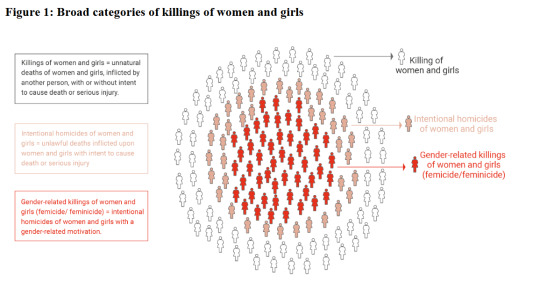
The intentional homicide rate for female victims in the US is 2.9/100k (data from 2021), and it is steadily increasing after having been on the decline since the mid-90s.

That only includes the pink and red circles shown in the UN's chart, not accidental deaths or unknown deaths like the HRC includes in their counts. Some countries have as many as 10.6/100k women die a year.
TL;DR: The murder rate for trans people in the US is not increasing, it is decreasing. This isn't indicative of a trans genocide in the slightest.
But nation wide, we have seen [...] a massive increase in anti-trans legislation.
As I was saying earlier, this idea stems from sensationalist headlines. It's concerning to me how widespread the misinformation about anti trans legislation really is, when house bills are publicly available online. You can literally do a quick Google search and find that most of these bills are nothing burgers.
Unfortunately, it's easier for you to just go on a website like translegislation.com and have them tell you what these bills say. I'll do some of the work for you and go through how these sites lie to you.

Alabama imposing criminal penalties on providers of trans healthcare? Sounds scary. Let's see what the source they linked, the HRC, has to say.

Ah. So it's specifically regarding transgender youth. As in, minors. This is after going through an insanely long title detailing how bad the bill is. The trans legislation tracker essentially lies by omission, implying that all trans healthcare is being criminalized.
Going to the bill in question, AL SB184, we can see that it actually acknowledges the existence of dysphoria in children.

However, they also acknowledge that this feeling may be fleeting, and that making permanent changes to a child's body solely on account of the child's personal sense of identity is unwise.
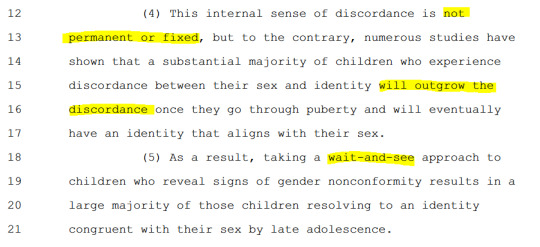
I won't go through every single bill here, as this post is already very long, but you get the idea. Feel free to send another ask if you would like me to look at specific bills.
Back to your ask: the way you speak of these bills shows that you've never read them for yourself or know how legislation works, since you're acting like it's the beginning of Armageddon.
This legislation aims to strip trans people of their autonomy and privacy. It seeks to put trans children in danger, remove information about what it is to be trans or queer from children's access, and enforce archaic ideas about what it means to be a man or woman.
I'm assuming by autonomy and privacy, you mean the choice to undergo medical transition and the bathroom/locker room/women's sports issue respectively.
Bills limiting "gender-affirming" care are focused on children, since puberty blockers like Lupron are now known to have very negative and permanent effects. The bills don't ban adults from choosing to take HRT. It's extremely profitable for doctors to continue to prescribe HRT and for surgeons to continue to recommend expensive plastic surgeries. Legislation won't go that route unless there's a massive shift in public perception.
The "Save Women's Sports Act" literally just limits participation in women's school sports to females only. That's it. The trans legislation tracker even acknowledges this.

Most of these bills are copy pasted from eachother, which is why they're all dubbed as "Save Women's Sports." Here's a snippet from HB61 in Ohio:

If someone's sex is brought into question, a simple blood test is all that's needed. Contrary to what the media may have led you to believe, there are no forcible genital inspections. No trans person is being forced to undress for this. Only 6 trans "girls" are affected by this in Ohio, out of 400k total athletes in girl's sports. So I'm not sure why this feels like a precursor to genocide to you.
remove information about what it is to be trans or queer from children's access,
Personally, I don't think children should be aware that medical transition is even a remote possibility unless they are in extreme psychological distress related to their sex. Even then, therapy is usually the best solution. I don't think the "Gender Unicorn," a surprisingly complex graphic created in part by an alleged violent rapist and groomer, should be used in classrooms to teach children about gender ideology. Gender ideology should be taught to college students who are better equipped to form their own opinion, not children who barely know how to read.
There are better, more useful things to push in our education curriculum, like compulsory comprehensive sex ed. That way, young men don't learn about sex through violent pornography, and young girls don't accidentally get pregnant without knowing what it means. This would also be a good time to teach them about sexual orientation. Leaving it up to the parents or focusing on abstinence evidently doesn't work.
enforce archaic ideas about what it means to be a man or woman.
The lack of self-awareness here is pretty astounding. The trans movement actively enforces these archaic ideas of gender by telling tomboys that they might actually be a boy. This implies that femininity is what makes womanhood, which is objectively untrue.
By telling masculine women that they are men and feminine men that they are women, you're literally enforcing the gender roles you say you're destroying.
They'll want to make it illegal to exist as a trans person in public.
You can speculate about this all you want, but you can't see laws limiting child transition and keeping sports sex-segregated as writing on the wall. We're not even close to that.
Now I'm not saying that that's genocide. I think we're an awfully long way off from trans people being mass arrested for being trans, and then murdered by the state.
I'm glad to hear you are moderately sane.
But we are in a rising climate of fear,
Your phrasing reminds me of US politics in the wake of 9/11. When people act out of fear, decisions are made in haste, and wars are started over made-up WMDs. Being fearful clouds your judgement.
Look around you. You're safe and accepted. The trans flag is flown almost everywhere in June. A trans woman won the NCAA National Champion title just last year. For International Women's Day, multiple companies featured trans women. Time Magazine featured many trans women as Women of the Year. Language is now inclusive, so women don't actually exist anymore. We're just uterus havers. This is all to cater to trans people.
Yeah. It's getting to be a bit much, isn't it? Don't you expect the least bit of pushback, especially from women? We aren't living in fear of some invisible boogeyman. We are angry at how rapidly our hard work has been undone.
We're pissed that after decades of feminist progress, we've regressed to being considered non-men once again.
and I don't think the trans people calling this the seventh stage of genocide are doing so out of bad faith. I think they're doing that because they are terrified of having their right to take life-saving medication, or have protection in the workplace, or be able to use a bathroom, or have children, or wear what they want to wear taken away.
Puberty blockers and HRT do not save lives. They actually haven't been proven to have a substantial enough effect on mental health to consider them an adequate treatment for gender dysphoria.

2. Trans people have the same basic human rights as any other human being.
3. Many places are adding gender-neutral bathrooms in order to accommodate the growing trans population. No one is checking your genitals at the door of a bathroom, no one cares that much. I care about girls being assaulted at school by boys in skirts and the school boards covering it up in the name of trans acceptance (x).
4. Trans people remove their own ability to have children by going on puberty blockers, HRT and even eventually physically castrating themselves. If you mean the ability to adopt or foster children, I don't know. Gay and lesbian couples still have a hard time adopting to this day, so progress can be made in that department.
To conclude this hodgepodge of various facts, screenshots and links, I'll leave you with this:
I fundamentally disagree with you that crying "genocide" is in any way helpful for your community. It's not. Most of Western society might have forgotten what genocide looks like or doesn't even know what the word means anymore, but you should know better as a Jew.
The attention trans people get from saying that they're going through a genocide is overwhelmingly negative from people on both ends of the political spectrum at this point. People are annoyed at trans people for making shit up, which ruins your movement's credibility.
When you have to lie to get someone's attention, you've already lost.
#trans genocide#anti trans bills#radfemfox#ask#anon#debunked#rad fem#radblr#radfem#radfem safe#radfems#radical feminism#terf#terfblr#terfs#terf safe#terfsafe#gender critical#radical feminists do interact#radical feminst#radical feminist community#radical feminist safe#radical feminists do touch#radical feminists please interact#radical feminists please touch#femicide#feminism#feminist#sex not gender#female not feminine
1K notes
·
View notes
Text
Why Sunny’s Halloween costume is a mummy instead of a vampire
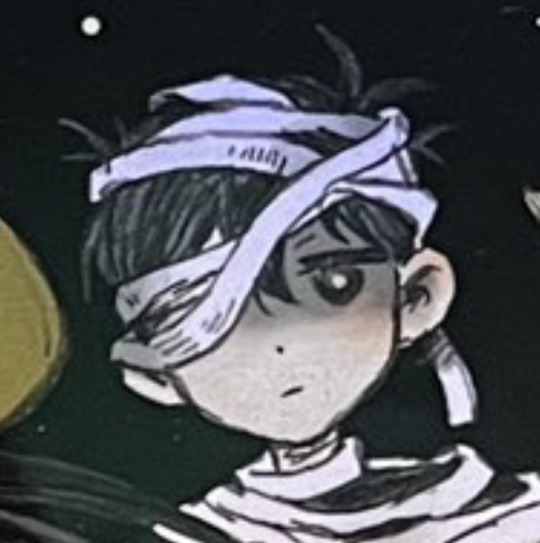
Okay strap in guys this is a long one
(Under a read more because I have lost my mind)
(Also for some stuff I’m using Wikipedia as a source this isn’t a professional essay or anything)
Something I have noticed with Omori fans is that, much like with other fandoms, people like to assign fun Halloween monsters to their favorite characters. For a character like Sunny, I have noticed that many people opt to make him a vampire, which is a choice that seems quite understandable. The idea of the modern vampire can be traced back to many different authors, the most popular one in the minds of most being Bram Stoker’s Dracula, which was published in 1897. Some of the visual and behavioral trademarks of a vampire has to do with things such as aversion to sunlight, pale skin, fangs, and the need to feast on the literal blood of others to stay alive. Vampires have always been considered undead, which aligns with their history throughout folklore; there were several instances where corpses were staked after being accused of vampirism.
Reading this, its easy to see why fans would assign a character like Sunny to the idea of vampires based on all of the common traits of vampirism. However, while I do enjoy AUs and such of a vampiric Sunny, I disagree with this common interpretation and instead propose the idea of Sunny being associated with a different kind of undead monster: the zombie.
(“But Kaun, didn’t you say in the title of this post that Sunny is associated with mummies?” Yes, but we’ll get there.)
The origin of the zombie can be traced back to several different sources throughout the world, the most well-known one being Haitian folklore during the 19th century. Regarding modern depictions, popularized by the film Night of the Living Dead, zombies tend to be slow, rotting, human undead (while it must be noted that undead animals isn’t particularly uncommon either). Much like vampires, zombies need to consume humans to survive, but the difference is that, while vampires only need blood in most depictions, zombies tend to eat all parts of the body. The idea of the brain being the specific target is something that’s only come up within the last fifty years throughout pop culture; adding to these newer additions, it was only within the last twenty or thirty years that the idea of the running zombie was introduced and subsequently popularized.
So what does any of this have to do with Sunny?
Well, thought Omori, we are shown clear evidence of why the idea of the zombie resonates with his character. The most obvious example is with Hellsunny, who can be found throughout the entire truth sequence, in some parts of Black Space, and in a very particular cutscene in the Hikikomori Route.


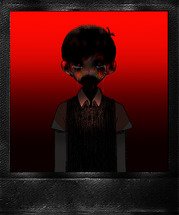
Now, while its easy for us to assume things from the POV of Sunny himself, sometimes its important to take into account the intent of the creator in order to interpret things such as this. So, once again, why a zombie?
Well, the choice of the zombie is quite obvious to me: the fact it is commonly referred to as the living dead. Now what does this allude to regarding Sunny? It most likely correlates with his emotions in the wake of Mari’s death, especially considering he’s the one who killed her in the first place. It is commonly said by people who have experienced the loss of a loved one feel as if they’re just drifting through life after their passing, and the same can definitely be said for Sunny. At the time the real world sections of the game take place, its been four whole years since the incident had occurred, and Sunny has both figuratively and literally wasted away in his own home. Characters comment on how he seems very skinny and/or frail, and how he clearly hasn’t been taking care of himself. In a way, its like a part of him died alongside Mari.
This is where we get to what some would consider to be an extension of the zombie archetype: the mummy.
Regarding its depiction in horror since the history of real mummies is an entirely separate conversation, the modern depiction of the (male) mummy can be found dating back to the 1932 film The Mummy. While most historical, real life mummies had their organs removed before burial, the mummy from the film (named Imhotep) was deduced to have been buried alive after it is discovered that its organs had not been removed at all. Now while the rest of the film’s plot isn’t quite as relevant to our analysis, I believe these details are important to note. The idea of the mummy being something sealed away, only later to be awoken again as some kind of living dead, is very interesting considering the parts of Omori that make this comparison to Sunny. The allusions to the idea of Sunny’s own home being some kind of coffin or tomb adds to these ideas.
This is why I think the vampire comparisons simply do not fit. The idea of the vampire inherently implies that the afflicted needs to take something from others in order to survive, and while the same can be said about zombies it must be noted that within recent years the idea of a kind zombie has been slowly making itself known. Additionally with mummies, aside from the blatantly orientalist bullshit regarding its history in pop culture, don’t tend to be depicted with having to consume any physical part of the human body (but physical violence in general is still on the table for them. They tend to be depicted as more on the level of vampires in terms of their intelligence).
In contrast, the living dead (referring to both zombies and mummies) tend to be much more passive. Most don't go out of their way completely to hunt humans, only hunting if one crosses their path—mummies even more so, with them not even needing human flesh to maintain themselves. When not hunting, these monsters tend to just... exist, not doing much of anything at all. They don't expend energy on actively looking for what they need to survive, instead opting for what they need to find them, wasting away all the while. And the thing is with zombies: they rot. They decay, bound by more realistic things than mummies are (which tend to be sustained my more magical elements in pop culture).
While the idea of having to actively go out and hurt others to sustain yourself is very interesting, when specifically regarding Omori’s canon, it doesn’t quite fit in line with Sunny’s character and his arc. In contrast, him neglecting his own needs and wasting away is more in-line with all of that, which is why he’s more commonly depicted as being a zombie or a mummy by official material.
I know this post is extremely long-winded, but I think this kind of analysis is very fun. Additionally, you don’t have to take my word as gospel, either. I enjoy AUs where Sunny is a vampire, since he’s in a position where he has to violate his own morals in order to sustain himself. I think it acts as a very interesting way to deconstruct his character, and to push him to his limits (including the brink of death if he refuses to hunt).
#rambles#omori#omori sunny#Omori analysis#I have clearly lost my mind and need to be sent to the nearest mental facility at once
265 notes
·
View notes
Text
The Flower That Bloomed Nowhere, 000-012
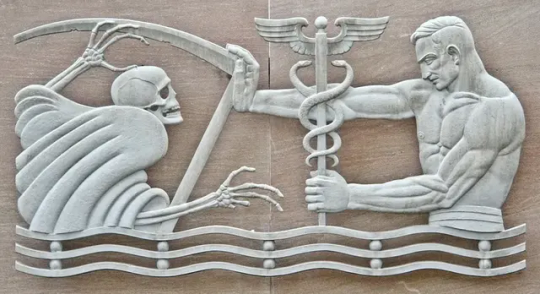
Or, what if that mural was the heart of a web serial.
I'm reading The Flower That Bloomed Nowhere, thanks largely to the enthusiasm of @azdoine and @lukore on my dash over the last few months.
This is absolutely not gonna be a liveblog in the level of detail of the great Umineko liveblog project. Rather I'm gonna be aiming at something like the comics comints series or those occasional posts on anime. Or indeed what I wrote about Worth The Candle last year. I must create a robot whose purpose is to watch to see if I start writing detailed plot summaries and hit me with a stick labelled 'remember you have a job now'.
That outta the way, let's talk flower!
youtube
No, not that flower!
I will start with an anecdote. When I was at university, I ended up attending a talk by court alchemist senescence researcher Aubrey de Grey, who at that time did not yet have a 'sexual harassment allegations' section on his Wikipedia page. The main thing that struck me at the time was his rather spectacularly long beard. But I did listen to his talk about ending aging.
de Grey's schtick is that he, like many people in the transhumanist milieu, believes that medical technology is on the cusp of being able to prevent aging sufficiently well to prolong human lifespans more or less indefinitely. He believes that the different processes of aging can be understood in terms of various forms of accumulating cellular 'damage', and that these will begin to be addressed within present human lifespans, buying time for further advancements - so that (paraphrasing from memory) 'the first immortals have already been born'. He has some pretty graphs to demonstrate this point.
At that talk, one of the audience members asked de Grey the (in my view) very obvious question about whether access to this technology would be distributed unevenly, creating in effect an immortal ruling class. de Grey scoffed at this, saying he always gets this question, and basically he didn't think it would be a big deal. I forget his exact words, but he seemed to assume the tech would trickle down sooner or later, and this was no reason not to pursue it.
I'm sure de Grey is just as tired of being reminded of how unbalanced access to medical technology is in our current world, or the differences in average life expectancy between countries.
So, I was very strongly reminded of de Grey as The Flower That Bloomed Nowhere laid out its major thematic concerns and characters. I was also put in mind of many online arguments in the transhumanist milieu about whether it would be a good thing, in principle, to end death.
In particular, of course, comes to mind transhumanist Nick Bostrom's short story The Fable of the Dragon-Tyrant, in which death is likened to a huge dragon that demands to be fed trains full of humans every day. In the story, humanity's scientists secretly build a giant gun to kill the dragon. Naturally, despite all the doubters and naysayers who foolishly feel obliged to justify the existence of the dragon, the gun works. Bostrom's imagery is incredibly heavy-handed (particularly the trains à la Auschwitz), but just in case you didn't get it, he also spells out the moral explicit at the end: basically, every day not spent putting resources to abolishing death is adding up more and more bodies to the pile of people who don't get to be immortal.
So far, Flower seems to be shaping up to be a critical intervention into that milieu, with a much more grounded view of death and a much stronger model of society - admittedly not a high bar but it's going good so far!
At the time of writing this commentary, I have read the prologue and first two six-chapter arcs, namely Mankind's Shining Future (1-6) and Pilgrimage to the Deep (7-12).
the general shape of things
We are introduced - from the perspective of sardonic, introverted Su, who is going to be the protagonist of our time loop - to a group of brilliant young medical wizards, who have just been invited to visit the headquarters of a secret society whose mission is precisely to abolish death. Su's grandfather was some kind of controversial luminary who was expelled this organisation, and he also did something to her, which is giving her some kind of ulterior motive to find her way into this society.
We know pretty much from the outset that this is a time loop scenario: Su has been explicitly given the opportunity to replay the scenario in the hopes of find an alternative outcome, by some kind of presently mysterious parties. This first part is the 'control' loop, i.e. probably more or less how things went down 'originally'.
I believe Umineko is an explicit inspiration for this story, and the influence is pretty evident. But parallels with the Locked Tomb series, especially Gideon the Ninth, are also quite noticeable. @lukore spoke of it as the STEM to Locked Tomb's humanities, and I can already kinda see it, although we haven't got into the real meat of the scenario yet. This story began serialisation four years ago, making the two works roughly contemporary. The latest chapter was published in the last couple of weeks - no idea if I've arrived just in time for the ending!
Stylistically, it's generally pretty heavy on dialogue and long asides. The characters are a bunch of mega nerds who love to have big philosophical and political discussions, but their dynamics are well enough realised and their dynamics clear enough that it can double up as naturalistic characterisation. So far, the discussions have been interesting to read.
Below I'm going to make some notes and comments on various elements of the setting and story. In a followup post (because it got too long) I'm going to talk a lot about entropy. Perhaps you will find this interesting!
the world
The first few chapters are dedicated pretty hard to exposition. We find ourselves in a distant-future setting - one in which it seems reality has totally collapsed and then been rebuilt using magic, creating a somewhat oddball universe which lacks things like the element iron, and also electromagnetism. This seems like it would have pretty severe implications for just about everything!
However, the 'ironworkers' have, after producing a series of trial and error 'lower planes' that didn't quite get it right, landed on a fairly close approximation of how things used to be on the old world. Though by 'fairly close approximation' I mean like... it's a bowl-shaped world and the sun and stars are artificial lanterns. But still, there are humans, and they seem to work more or less like we're used to humans working, apart from the whole 'magic' thing.
So, an alt-physics setting. Praise Aealacreatrananda, I love that shit.
While electromagnetism might be out, the more abstract physical principles like thermodynamics still apply, and the humans of this universe have managed to find analogues to a number of things in our world. Instead of computers, they have 'logic engines' which run on magic. Horses seem to have made it in, so we get delightful blends of historical and futuristic concepts like a self-driving computer-controlled horse-drawn carriage taxi.
The biggest difference is of course that in this setting, magic - more on that in a bit - has solved most medical problems and humans routinely live to around 500. The setting is ostensibly a semi-post-scarcity one, although a form of money exists in 'luxury debt', which can be exchanged for things like taxi rides, café food and trips on the space elevator.
Politically, we are told that the world has enjoyed a few hundred years of general peace, broken in living memory by a revolution which put an end to a regime of magical secrecy. There are lots of countries, and an alliance overseeing them.
There's a few other oddities in this world. Something called a 'prosognostic event' can happen if you see someone who has the same face as you, and whatever this is, it's bad enough news that everyone is constantly reminded to veil their faces in public and there's some kind of infant 'distinction treatment' to mitigate the risk. Given that, in the regular world, nothing particularly bad would happen if you ran into a long-lost identical twin, it suggest there is probably something a little fucky about how humans work in this world!
There's evidently a fair bit of effort put into the worldbuilding of fictional countries and historical periods. The important elements seem to be roughly along the lines of:
our world is currently in what they call the 'old kingdoms' period, which is poorly remembered;
next up comes an 'imperial' period of high transhumanist shenanigans in which society was ruled by 'gerontocrats' who got exclusive access to the longevity treatment, but this all somehow led to a huge disaster which destroyed og earth;
the survivors built the Mimikos where humanity currently lives using magic and created some kind of huge iron spike that holds the universe together; there was subsequently a 'fundamentalist' period in which a strict cutoff point was put on human lifespans and a lot of the wackier magic was banned;
now we're onto a new era of openness following a small revolution, while the major political structures remain largely intact.
Writing a far-future setting is hard, because trying to deal with the weight of history without the story getting bogged down with worldbuilding details is a fiddly line to walk. The Dying Earth series of Jack Vance might be a relevant point of comparison. Vance leaves the historical details vague - there are endless old kingdoms and strange artefacts and micro-societies for Cugel and co. to stumble on. Far more important than the specifics of history is establishing the vibe of a world that's seen an unimaginable amount of events layered on top of each other and is honestly a bit tired.
Flower makes things a bit more concrete and generally manages to make this work decently well. I do appreciate the asides where Su talks about, for example, the different architectural styles that layer up to make a place, or the way a technique has been refined. It establishes both that Su is the kind of person to notice this sort of thing, and also helps the world feel lived-in.
the names
The story doesn't do a lot with language. The story is written in English, and the narration will occasionally make reference to how things are phrased (e.g. how divination predates the suffix -mancy). We can probably make the standard assumption that this is all translated from $future_language, with the notional translator making a suitable substitution of whatever linguistic forms exist in that language.
The characters are named in a variety of languages. Our main character's full name is Utsushikome of Fusai. We're told that this is "an old name from Kutuy, and means something like 'mysterious child'" - so Kutuyan is one of the languages spoken in this world. It's blatantly got the same phonotactics as Japanese, and indeed if I search up 'Utsushikome', I find an obscure historical figure called Utsushikome-no-Mikoto, wife of the Emperor Kōgen; she has no article on English Wikipedia, but she does have a brief one on Japanese wiki. Just as Su says about Kutuyan, 'Utsushikome' is written 欝色謎 in Japanese, but it relies on archaic readings of those characters and wouldn't read that way in modern Japanese. We could perhaps assume a good old translation convention is in effect where Kutuyan is replaced with Japanese.
A lot of characters have Greek names, as do various setting elements. One exception is Kamrusepa, or Kam, who is named for an ancient goddess of medicine worshipped by the Hittites and Luwians. I know basically fuck all about Hittites and Luwians but it's a cool little nod to mythology, and it won't be the only one!
I'll run down a list of characters and my comments about them in a bit. But many are named after gods or other mythological figures.
the magic
Most of the divergences come from magic existing. Certain humans are 'arcanists', who are able to use the 'Power', which is a magic system with a highly computational flavour. Thanks to Su's expositional asides, we know that an incantation is something like a short program written in cuneiform with the ability to gather information, perform maths, and manipulate particles. An example we are given is a spell called "entropy-denying", which is the following string of cuneiform:
"…(𒌍𒌷𒀭)(𒌍𒁁𒀭)𒅥𒌈𒆜𒈣𒂠, 𒋢𒀀𒅆𒌫𒃶,𒈬𒊹."
We're told that spells always start with phrases ending in 𒀭, and end in 𒊹. Beyond that, I'm not sure how far the author has actually worked out the syntax of this magic system - probably not in too much detail! Seems like the kind of thing it's better to leave vague, but also she seems like kind of nerd who would (positive). It's conceptually a reasonable magic system for a world where more or less realistic physics applies.
The use of unusual scripts for a magic system isn't that unusual - the old European occultists who wrote the [Lesser] Key of Solomon loved to write on their magic circles in Hebrew, and in modern times we could mention Yoko Taro's signature use of the Celestial Alphabet for example - but the specific use of cuneiform here seems like it might be a little more significant, because a little later in the story the characters encounter a mural depicting The Epic of Gilgamesh, which of course was recorded on cuneiform tablets. Remains to be seen exactly what these allusions will mean!
The magic system is divided into various disciplines defined by the different ways they approach doing magic, with the disciplines breaking down broadly along the same lines as the modern scientific disciplines. For example, our protagonist is a thanatomancer ("necromancer" having become unfashionable), which is the discipline dealing with death; she's specifically an entropic thanatomancer, distinguished by their framework viewing death as the cessation of processes.
Magic relies on an energy that they refer to as 'eris' (unknown relation to the Greek goddess of strife and discord). We are told that eris must be carefully apportioned across the elements of a spell or shit blows up, that it can be stored, and it accumulates gradually enough that you don't want to be wasteful with it, but so far given little information about where it comes from.
Magic in this story generally seems to act as a kind of 'sufficiently advanced technology'. It's very rules-based, and used for a lot of mundane ends like operating computers or transport. Advancement in magic is something like a combination of basic research and software development. But the thing that makes it a magic system and not merely alt-physics is that it's at least a little bit personal: it must be invoked by an individual, and only certain people can operate the magic. We're told a little about how wizards are privileged in some societies, indoctrinated in social utility in others, and expected to be inconspicuous in the present setting. It's not clear yet if you need some kind of special innate capacity to do the magic, or if it's just a matter of skill issue.
With one exception, our main characters are a gaggle of wizards, and exceptionally skilled students at that. They're at an elite institution, carrying high expectations, even if they are themselves fairly dismissive of the pomp and ceremony. They have grandiose plans: Kamrusepa in particular is the main voice of the 'death should be abolished' current.
the cast
We're entering a cloistered environment with high political stakes hanging off of it. Even if I hadn't already heard it described as a murder mystery, it would feel like someone will probably be murdered at some point, so lets round up our future suspects.
Su (Utsushikome) is our protagonist and first-person POV. She's telling this story in the first past tense, with a style calling to mind verbal narration; she'll occasionally allude to future events so we know for sure narrator!Su knows more than present!Su. She's got a sardonic streak and she likes long depressing antijokes, especially if the punchline is suicide. She will happily tell us she's a liar - so maybe her narration isn't entirely reliable, huh.
Su is more than a little judgemental; she doesn't particularly like a lot of her classmates, or people in general, and generally the first thing she'll tell you about a character is how well she gets on with them. She introduces the theme of 'wow death sucks' in the first paragraph, but she is, at least at this point, pessimistic that anyone will manage to do anything about it for good.
Her magical specialisation is entropic thanatomancy, roughly making processes go again after they working coherently.
Her name is a reference to an obscure Japanese empress, as discussed above.
Ran is Su's bestie from the same home country. She is generally pretty on the level. She likes romance novels and she is pretty sharp at analysing them. She will cheerfully team up with Su to do a bit or bait someone else when an argument gets going.
Her magical specialisation is Divination, which is sort of a more fundamental layer of magic, about gathering information by any means. In medicine it's super advanced diagnostics.
Her name is too short to pin down to a specific allusion. Could be one of a couple of disciple of Confucius such as Ran Geng, or a Norse goddess of the sea.
Kam (Kamrusepa) is the de facto class prez and spotlight lover. She's hardcore ideological, the story's main voice of the de Grey/Bostrom death-abolishing concept so far - I think she straight up calls someone a 'deathist' at some point. She loves to tell everyone what she thinks about everything, and getting the last word.
Her magical specialisation is Chronomancy, so time magic. It's described as secretive and byzantine, but also it can do stuff like (locally?) rewind time for about five minutes. No doubt it has something to do with the time loop.
As mentioned above, she's named after a fairly obscure ancient deity of healing and magic.
Theo (Theodoros) is a fairly minor character. He's scatterbrained and easily flustered, he has a similar background to our protagonist, and he's not great with people. His name is shared with a number of ancient Greek figures, so it's hard to narrow it down to one allusion. I don't think his magic school has been mentioned.
Ptolema is a cheery outgoing one, someone who Su dismisses as an airhead. And she is at least easy to bait into saying something ill-considered. Her specialisation is applying magic to surgery. As a character, she tends to act as a bit of a foil to the others. Bit of a valley girl thing going on.
'Ptolema' is presumably a feminised version of the renowned Greek philosopher Ptolemy.
Seth is the jock to Ptolema's prep, and our goth protag Su doesn't particularly like him either. ...lol maybe that's too flippant, I may be misapplying these US high school stereotypes. To be a little more precise then, he's pretty casual in demeanour, flirty, likes to play the clown. He specialises in Assistive Biomancy, which revolves around accelerating natural healing processes.
Seth is named for either the Egyptian god (domain: deserts, violence and foreigners) or an Abrahamic figure, the third son of Adam and Eve granted by God after the whole Caim killing Abel thing.
Ophelia is someone Su describes as 'traditionally feminine' - soft-spoken, demure etc. (Gender in this world appears to be constructed along broadly similar lines to ours). Indeed we get a fairly extended description of her appearance. Her specialisation is Alienist Biomancy, which means introducing foreign elements to healing (not entirely sure how that differs from the Golemancy mentioned later).
Ophelia is of course a major character in Shakespeare's Hamlet, best known for going mad and dying in a river.
Fang is the only nonbinary member of the class, noted as the most academically successful. They're not on the expedition, but the characters discuss them a little in their absence, so maybe they'll show up later. It seems like they have a bit of a rebellious streak. Their magical specialisation is not mentioned.
Fang is a regular ol' English word, but I gave it a search all the same and found there's an ancient Chinese alchemist of that name. She is the oldest recorded woman to do an alchemy in China, said to know how to turn mercury into silver.
Lilith is the teenaged prodigy in computers logic engines, and Mehit is her mother who accompanies her on the trip. They've got a big Maria and Rosa (of Umineko) dynamic going on, with Mehit constantly scolding Lilith and trying to get her to obey social norms, though in contrast to Maria, Lilith is a lot more standoffish and condescending to the rest of the gang. Lilith specialises in 'Golemancy', which means basically medical robotics - prosthetic limbs and such. She spends most of her time fiddling with her phone logic engine, and will generally tell anyone who talks to her that they're an idiot. Sort of a zoomer stereotype.
Lilith is named for the Abrahamic figure, the disobedient first wife of Adam who was banished and, according to some Jewish traditions, subsequently became a demon who attacks women at night. There may be some connection between Lilith and the lioness-headed Mesopotamian chimeric monster Lamashtu, which I mention because Mehit is an Egyptian and Nubian lion goddess.
'Golemancy' is probably playing on the popular fantasy idea of a 'golem' as a kind of magic robot, but given the Jewish allusion in Lilith's name here, I do wonder a little bit if it's going to touch on the Jewish stories of the Golem which inspired it - a protective figure with a specific religious dimension.
There are some other characters but they're not part of the main party on their way to the function, so I won't say much about them just yet. Also it's entirely possible I went and forgot an entire classmate or something, big whoops if so.
the events
In true Umineko tradition, the beginning of the story narrates in great detail how the protagonists make their way to the place where the plot is going to happen.
To be fair, there's a lot of groundwork to be laid here, and the characters' discussions do a lot to lay out the concerns of the story and sketch out the setting, not to mention establish the major character relations. A murder mystery takes a certain amount of setup after all! There's plenty of sci-fi colour to be had in the 'aetherbridge', which is a kind of space elevator that lifts you up to a high altitude teleporter network. (It's technically not teleportation but 'transposition', since teleportation magic also exists in the story, with different restrictions! But close enough for government work.)
They go to a huge space citadel, which is kind of a transport hub; some cloak and dagger shit happens to hide the route they must take to the mysterious secret organisation. They find a strange room with a missing floor and a mural of the Epic of Gilgamesh, albeit modified to render it cyclic. What does it meeaaaan?
The idea of a secret society of rationalists is one that dates back to the dawn of ratfic, in HPMOR. It was kinda dumb then, but it works a lot better here, where we're approaching the wizard circle from outside. The phrase 'Great Work' has already been dropped. I love that kind of alchemical shit so I'm well into finding out what these wizards are plotting.
the dying
A lot of the discussions revolve around the mechanics of death. Essentially the big problem for living forever is information decay. Simple cancers can be thwarted fairly easily with the magic techniques available, but more subtle genetic slippages start to emerge after the first few hundred years; later, after roughly the 500 year mark, a form of dementia becomes inevitable. It's this dementia in particular that the characters set their sights on curing.
One thing that is interesting to me is that, contra a lot of fantasy that deals with necromancy (notably the Locked Tomb series), there appears to be no notion of a soul in this world whatsoever. The body is all that there is. Indeed, despite all the occult allusions in the character names, there is very little in the way of religion for that matter. Even the 'fundamentalism' is about an idea of human biological continuity that shouldn't be messed with too much.
Su distinguishes three schools of thought on death, namely 'traditional', 'transformative' and 'entropic'. The 'traditional' form attempts to restore limited function - classic skeleton shit. 'Transformative' sees death as a process and uses dead tissues together with living in healing. Su's 'entropic' school broadens this 'process' view to consider death as any kind of loss of order - a flame going out as much as an organism dying. At the outset of the story, Su has discovered a 'negentropic' means to restore life to an organism, which she considers promising, even if for now it only works for fifteen minutes.
This is an interesting perspective, but the devil is in the details. Because processes such as life or flames, necessarily, result in a continuous increase in the thermodynamic entropy of the universe. And yet this idea of death-as-loss-of-order does make a kind of sense, at a certain level of abstraction.
Elaborating on this got rather too long for this post, and I think it can stand alone, so I'm going to extract it to a followup post.
the comments
As is probably evident by the length of this post, I am very intrigued by The Flower That Bloomed Nowhere. The setting is compelling, and it seems like it's got the willingness to bite at the chewy questions it raises instead of acting like it has all the answers, which is I think one of the most crucial elements for this kind of scifi. I like how unabashed it is at having its characters straight-up debate shit.
Of course, this all depends where they go with it. There's so many ways it could be headed at this point. I hear where it's going is 'dark yuri' and 'Umineko-inspired murder mystery', so that should be really juicy fun, but I do end up wondering what space that will leave to address the core theme it's laid out in these first few chapters.
Overall, if this and Worth the Candle are what modern ratfic is like, the genre is honestly in pretty good shape! Of course, I am reading very selectively. But this is scratching the itch of 'the thing I want out of science fiction', so I'm excited to see where the next 133 chapters will take me.
Though all that said, I ended up writing this post all day instead of reading any other chapters or working, so I may need to rein it in a bit.
66 notes
·
View notes
Text
not to Goncharov Post but I did go poking around about the real original movie and honestly it's p cool!
it's originally made in a mix of both Italian and Neapolitan, which is a separate language from Italian with a variety of dialects spread across Italy (though yes, centrally in Naples)
the movie came out in 2008 (not at ALL 1973) & did decently at film festivals! there's also a (apparently just as good, 58 episode) tv show also based on the same book
quite a few actual "Mafia" (Camorra) members acted in the movie (and TV show) and were later convicted of Hella Crimes. (Wikipedia has a section titled "Cast members arrested".) It's also alleged that the director (Matteo Garrone, not Scorcese, though their films have other similarities) had to pay 20,000 euros basically as "please don't burn us down" protection money
the movie & tv show are based on a nonfiction book published in 2006 (that you can read! for free! here!) about the actual organized crime in Naples, primarily the Casalesi clan of the Camorra, by a guy who went undercover to infiltrate them (in his late 20s!!)
Unlike the Japanese Yakuza (who reviewed Yakuza 3) with the similar book Tokyo Vice (by Jake Adelstein, who's 10 years older, published in 2009), the book author Roberto Saviano very much got death threats from the Casalesi and had to be under police protection with ten bodyguards at least from 2006-2014 (& possibly still is? I don't want to read Italian to find out)
the Italian govt gave the author police protection after not just the death threats but also an appeal started by six Nobel Peace Prize winners, including (again, all of this is true) Mikhail Gorbachev.
anyways here are your Peer-Reviewed Actually True Facts about Goncharov (1973, dir. Martin Scorcese) Gomorrah (2008, prod. Domenico Procacci).
#goncharov#Gomorrah#Gomorra#Martin Scorsese#unreality#but not actually.#these are actual true facts bc when I see a bunch of unreality stuff I like to go investigating to piece together what's actually going on#useful grounding and such!
403 notes
·
View notes
Text
I love when historical figures seemed to really love their wife. Of course we can’t know the specifics of their relationship hundreds of years later but it’s nice to open the personal life section on Wikipedia and see things like “He met his wife while she was working as a cigarette girl and they wed the following year at the ages of 22 and 23. They lived together until her death due to complications of diabetes at the age of 67. Their relationship was noted as being particularly tender, they were rarely seen apart, she was the inspiration for his most famous works. He planted a rose garden for his wife after her vision began to fail in 1896. He nursed her through her final illness and never remarried after her death.”
120 notes
·
View notes
Note
I know the night at the museum au was just self-indulgent HOWEVER! if it’s cool I have some ideas cause I’m very. ill <3
—for Toothless, I saw you suggest him possibly being a dinosaur, and I immediately thought of Daspletosaurus! Name translates to ‘frightful lizard’ (offspring of lightning and death, anyone) and some have been found in Canada, which, fun fact, when Vikings came to North America, they first landed on Canada and called it Vinland (‘wineland’) bc they could make a lot of wine there
—I was thinking about what specific Something Jack could be in the exhibit, and I saw you mention he was in roughly the 1700s exhibit, right? To me he looks best like he’d be in one of those “what life looked like for an average civilian in the colonial era” type of wax figures, especially with his staff looking like it’d fit with shepherds. I imagine his personality makes him extra unpopular in his section considering this means he may also be quite close to the Revolutionary War area. He ruins their nightly battles im SURE of it
—Bear w me here: the Guardians but their sections are from their myths place of origin, or someplace near it. North is based in Turkey or Russia, Tooth in the Norse area (eyo possibly near Hiccup), Sandy in Germany (or Scandinavia? Unclear), and Bunny in Australia. That’s not actually where the Easter bunny originated, however it IS the home of the Easter bilby, and I can’t deny the guy his accent
TLDR I am very sick legitimately and also for the NATM movies and history, that is all
YOOO these are all great ideas anon!!!
*puts hand on forehead and closes eyes* Oh, if only someone wrote this *peeks with one eye open*

(The dinosaur anon is talking about, according to Wikipedia!)
43 notes
·
View notes
Text
Apropos of half-awake thoughts this morning, I've been considering the perennial subject of people coming into fan-works and making demands of the writer or artist in regards to their creative choices. You know, 'this is wrong', 'you should change this', 'make more!!!' etc. It's been quite some years since I had to deal with that kind of behaviour but I've seen it happen to other people and it always sucks. Today my brain has decided to connect it to Humphrey Smith.
Story time: the town I come from has three breweries. The reason for this is that the limestone we're built atop filters the local water, making it 1) good and hard and 2) easy to access. Technically we're a market town but brewing is the foundation of our modern economy.
Two of these breweries, John Smith's and Sam Smith's, are the remnants of the brewing empire started by John Smith, a Victorian gentleman endowed with truly spectacular mutton-chops and also money, who bought an existing brewery in the town before building a new, much more impressive one further up the street. After his death, the business was left to his brothers, one of whom would go on to leave the old brewery to his nephew Samuel. Thus, the empire split into two. Both halves are still operating and have been successful enough that the current owner of Sam Smith's -- Humphrey -- is the biggest land-owner in the town.
Here is where the problems begin. You see Humphrey is, to put it gently, crackers. He suffers from being exceptionally wealthy and, despite some motions towards investing in local amenities, largely exists on a moral crusade against the changing social mores of the 20th Century. He won't countenance any businesses that does not contribute to the atmosphere of a sleepy market town (read: basically anything), refuses to maintain or sell off his properties, leaving the place full of the rotting shells of buildings, and he's been at war with the town council so long, they're currently planning to build on a flood plane that does indeed routinely get swamped by the river just to have somewhere to put new houses.
The man is not well-liked, is what I'm saying. And among his 'charming eccentricities' are the strict requirements he enforces on the pubs he owns. Any Sam Smith's pub must be run by people of good moral character (preferably a married man and woman), there must be no music and no phones, no swearing, no motorcyclists, no kissing, etc, etc. Basically imagine the dourest stereotype of Yorkshire grimness and that's what he's actively aiming for (no I am not kidding, just check out the 'controversies' section of the Sam Smith's wikipedia page).
Anyway, the point of all this is that there's a lovely tale shared around the town about how, one day, our Humphrey walked into a local pub and said to the bar-tender something to the effect of, 'Switch off that music, throw those people out, take down those fixtures and fittings, this is not the Victorian traditionalism I pay you for.'
Only, the bar-tender leant over the bar and replied, 'well that's nice, Mr Smith, but this isn't one of your pubs.'
Should you find yourself in the position of having some dipstick with fixed opinions swan into your work and start telling you everything you've gotten wrong, I think you could do worse than bear this heroic chap's words in mind. Your work is not their pub. They have no claim on what you make and no grounds for enforcing their vision over yours. They aren't paying you, you aren't working for them, and frankly, they have profoundly misunderstood the situation if they think they're entitled to tell you want to do.
This is true even in the face of widely accepted fanon or when you're cutting against general expectations. In fandom, every piece of art is the result of our own personal reactions to a piece of media. We can decorate our individual pubs however we want and if other people don't like it, well, they can lump it. Go forth and do what you like, music and kissing and all!
[This post brought to you by the belated 11 year anniversary of that berk on dA who spent ages arguing with my attempt at redesigning the Quarks from Doctor Who. The *bloody Quarks*, man! Sheesh.]
#fandom#fanfic#fanart#more rambling#just to be clear the usual 'do no harm' caveat always applies#you shouldn't be a jerk either#but beyond that#yeah#you don't owe nobody nothing
48 notes
·
View notes
Text
Bengiyo's Queer Cinema Syllabus
Had a busy couple weeks, but here I am, returning to @bengiyo’s queer cinema syllabus. I am currently working my way through Unit 4: Heartbreak Alley, the totally light-hearted, definitely not agonizing section of the syllabus where I get to watch countless acts of violence be committed against queer people. Thank fuck I have Lesbians waiting for me at the end of this unit. The films in Unit 4 are: Bent (1997), Strange Fruit (2004), Boys Don’t Cry (1999), Brokeback Mountain (2005), Parting Glances (1986), Philadelphia (1993), The Living End (1992), Holding the Man (2015), Jeffery (1995), and Boys on the Side (1995).
Today I will be writing about
Strange Fruit (2004) dir. Kyle Schickner

[Run Time: 88 min, Available: had to purchase a DVD, Language: English]
Content Warning: lynching, racism, homophobia, rape, violence/gore
Summary: A New York attorney must return home to Louisiana to investigate the death of a childhood friend who, like Boyals himself, was both black and gay.
Cast:
Kyle Faulcon as William Boyals
Berlinda Tolbert as Emma Ayers
__
Well.
First of all, I guess, a thank you to @bengiyo is in order for discovering that Strange Fruit was available on DVD so that I was actually able to watch it. This has joined the likes of Mysterious Skin on my ‘definitely something I needed to watch, but can probably never watch again” list.
I want to warn anyone that is considering finding this film and watching it that it starts with a lynching. I…. I’m not sure I have the words. Not to get too real on main, but I have some pretty major trauma related to hangings, and I am just desperately glad that I did not watch this last week, as that was the anniversary and I am not confident I would have been able to finish this film. As it is I have been sitting in complete and utter silence since finishing the movie because a) holy shit b) the rope burns on his neck c) holy shit.
How do you watch a film like this knowing that lynchings still happen all the time? How do you watch a film where a gay Black man in a small, rural country town is brutally beaten, raped with a branch, and hung from a tree on screen while knowing that just last week a Black man was found hanging from a tree in a small, rural country town? For a movie that was filmed on a budget of only $250,000 (according to Wikipedia, the director was offered 6 million if he didn’t make the lead character both Black and gay and he turned it down) it is absolutely packed with very important, nuanced social commentary around queerness, around race, around homophobia in general and homophobia within the Black community specifically, around how the police uphold power, around the relationship between intellectualism and the South, and around how the queer community survives.

(sorry for the abysmal photo quality, there are no photos of this film and I watched it on my TV so I was not able to take screen shots)
For as cheaply as it was made it packs a motherfucking punch let me tell you, watching Kelvin scream for help, call for his mother, was just gut wrenching. Watching William desperately plead with the Black men who were lynching him not to do so because they were perpetuating the cycle of violence done by white men to black men not that long ago. How some Black men were fine with that because Kelvin, because William were faggots. How others killed themselves when the dust settled, understanding the realities of what they had done. The speech at the grocery story between Mrs. Ayers and Mrs. Boyals about how desperately Mrs. Ayers had wanted to disown Kelvin for being gay and how grateful she was that she hadn’t because she lost Kelvin too young.
The way small town loyalties and small town fears intersect, Matthew being so grateful that William protected him all the way back in fifth grade that he went against the orders of the other cops to tell William everything he knew, and how he was so afraid to be considered a homosexual if he stood up for a queer man. The way Sheriff Jensey was a racist, homophobic piece of flaming dog shit who still was doing everything he could to prevent people from knowing his nephew was gay. How he was reduced to ground meat for it. (Though, he can die, I have no remorse for him whatsoever). The way Mrs. Ayers calls out the fact that William can pass as straight but Kelvin couldn’t. The way that the queer community was silent in the wake of Kelvin’s death because that was the only way to guarantee the survival of community pillars. The fact that there was no new coverage of Kelvin’s death that we could see, but when the white man was lynched, there were news trucks all over the place because someone in power was affected.
And perhaps my favorite example, Duane, who refuses to step foot in a gay bar for fear of looking gay when he first starts investigating his brother’s murder with William who is ready to throw hands at Sheriff Jensey’s nephew when he makes a homophobic comment, putting his parole at risk, who ends the film driving around in William’s rental car which has the word Faggot spray painted on the back. The way he was angry at William for the stupid, elitist shit he was saying, about how everyone in Louisiana had an IQ below 80, how he refused to call this place his home anymore. Duance handled those moments so beautifully. There are so many important scenes in this film, I don’t think I can count this one as my favorite, but I do need to acknowledge how happy I was that Strange Fruit let a Black man cry on screen. Like, so much of Kelvin’s murder, and William’s attempted murder was incredibly upsetting, but I felt very deep in my soul the pain, the grief, the nausea that Duane must have been feeling looking at the memorial to his brother at his murder site.
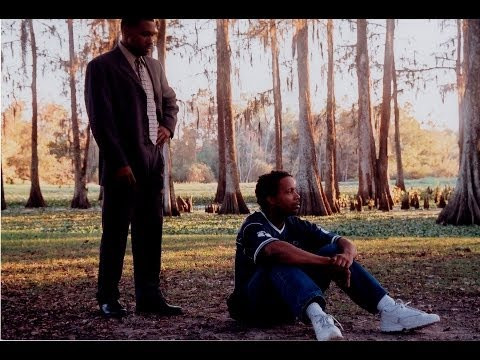
I know because (again to get too real) for every day for months after my hanging related trauma I had to walk past a memorial for the person who passed, and let me tell you that shit was fucking brutal.
There is so much more that could be said about this movie, but genuinely, I cannot find the words. The production team knew what they were doing when they didn’t put a backing track on the end credits, opting for a silence that was interrupted by only the chirping of crickets. Because that is what this movie is, that is what this movie does. I am not exaggerating when I say that the only thing I could do for thirty minutes after the screen went to black, was just sit on my couch, frozen, and feel the weight of the silence around me.
Favorite Moment
I talked about this a bit above but my favorite moment in Strange Fruit is when Mrs. Ayers and Mrs. Boyals run in to each other in the supermarket and Mrs. Ayers gives a very passive aggressively polite talking to to Mrs. Boyals about her homophobia, trying to get her to go back on her decision to disown William after finding out he was gay. I do think it is vitally important that we get a scene where a mother of a queer son, who just lost her child because of it, is able to admit that she struggled with his sexuality, that she desperately wanted to be rid of Kelvin, that she desperately wanted to forget he even existed. The way she was spared from having a major regret in her life because she ultimately did not do that. She lost Kelvin when he was too young, she understands at a cellular level the precious nature of time, and how easily it can be squandered and she is trying to spare Mrs. Boyals from that pain. I appreciate it strikes enough of a chord with Mrs. Boyals that she attempts to visit William at the hospital, even if ultimately she is not able to make it through the doorway to his room.
Favorite Quote
“See that’s the thing about the bayou, no matter how much you try to push it back ‘ventually it’s gonna claim what belong to it. This is where you from man. This is where home is. Don’t matter how many degrees you got, you country.”
As a Southerner who did flee North, Duane’s words are still ring true. Even when my home state wants to dispose of people like me, even when states I have called home express their hatred of people like me, there is still a part of me that feels the emptiness of being away from home. I miss the mangroves, I miss the mountains, I miss the food, I miss the people I love who love me. It feels impossible to have the type of community I had back home up where I am now, and I am trying as hard as I can to cultivate it. I just love this line so much because I think it is important to remember where you came from, especially because William just before this was insulting the intelligence of people in the South, his people, from his home. I’m really glad he apologized for that.
Score
8.5/10
If this was a grade based on just emotional manipulation, the film would get a 10 cause...fuck. But structurally I think it's probably like a 7 or an 8 so I am gonna give it an 8.5.
#bengiyo queer cinema syllabus#bengiyo queer media syllabus#queer cinema syllabus#strange fruit#strange fruit (2004)#strange fruit the movie#unit 4: heartbreak alley
22 notes
·
View notes
Text
Hyacinthus Iceberg Meme EXPLAIN (P1)
Part 1 ✿ Part 2 ✿ Part 3 ✿ Part 4 ✿ Part 5
It's time for me to answer your questions about this Hyacinthus iceberg meme. There is a lot to tackle, so I'll divide it into 5 parts for the sake of my sanity.
Quick disclaimer: I am NOT an expert in Greek mythology, just a fan of Hyacinthus who wants to learn about him and anyone related to him. Most of the things I'm about to discuss are just theories and speculations of a passerby on the Internet, so do not take them as valid facts!
Hyacinthus is Apollo's (boy)friend who died from a discus
We all know this. In almost every account that mentions Hyacinthus, we only have one paragraph about him that says he's beloved by Apollo, who accidentally killed him with a discus and turned him into a flower.
"[...] rich-tressed Diomede; and she bears Hyakinthos, the blameless one and strong […] whom, on a time Phoebus himself slew unwittingly with a ruthless disk."
- Hesiod, "Catalogues of Women"
"They tell how this Hyakinthos was loved by Apollon, who accidentally killed him while hurling a discus."
- Pseudo-Apollodorus, "Bibliotheca"
"'You are fallen in your prime defrauded of your youth, o Hyakinthos!' Moaned Apollo. 'I can see in your sad wound my own guilt, and you are my cause of grief and self-reproach. My own hand gave you death unmerited - I only can be charged with your destruction.'"
- Ovid, "Metamorphoses"
Zephyrus killed Hyacinthus
Another common version of Hyacinthus' death is that he is killed by Zephyrus, the West Wind. Zephyrus is jealous that Hyacinthus chose Apollo over him, so he pulls the classic "if I can't have him, no one can" move.
"A lout is Zephyros (the West Wind), who was angry with Apollon and caused the discus to strike the youth, and the scene seems a laughing matter to the wind and he taunts the god from his look-out."
-Philostratus the Elder, "Imagines"
"Zephyros who just shows his savage eye from his place of look-out - by all this, the painter suggests the death of the youth, and as Apollon makes his cast, Zephyros, by breathing athwart its course, will cause the discus to strike Hyakinthos."
- Philostratus the Younger, "Imagines"
"The death-bringing breath of Zephyros might blow again, as it did once before when the bitter blast killed a young man while it turned the hurtling quoit against Hyakinthos."
- Nonnus, "Dionysiaca"
Even though this version is more popular than the tragic accident version, there are theories that Zephyrus' role in the story is a later addition. Apollo killing Hyacinthus should be the focus of the myth, and I will explain this in the section about deity Hyacinthus.
Hyacinthus is from Amyclae (Sparta)
Hyacinthus is a prince of Sparta. He must have lived and died in the city of Amyclae because this is where his tomb/shrine and intensity of worship are.
"Hyacinthus, the youngest and most beautiful of [Amyclas'] sons, died before his father, and his tomb is in Amyclae below the image of Apollo."
- Pausanias, "Description of Greece"
"[...] at the Hyacinthia, before the sacrifice to Apollo, they devote offerings to Hyacinthus as to a hero into this altar through a bronze door [...]"
- Pausanias, "Description of Greece"
In Ovid's Metamorphosis, Apollo abandoned his shrine to hang out with Hyacinthus by the Eurotas River.
"And [Apollo] for [Hyakinthos] was deeper than he felt for others. Delphi, the center of the world, had no presiding guardian, while the god frequented the Eurotas and the land of Sparta [...]"
- Ovid, "Metamorphosis"
And guess what? Amyclae is next to the Eurotas River!

(Map taken from Wikipedia)
Hyacinthus' most popular siblings: Polyboea, Argalus, Cynortus
Hyacinthus is one of King Amyclas' children, possibly his youngest son. Who are other siblings is different in each account, but Polyboea, Argalus, and Cynortus are the most popular.
"On the death of Amyclas, the empire came to Aigalus, the eldest of his sons, and afterward, when Aigalus died, to Cynortas. Cynortas had a son Oebalus."
- Pausanias, "Description of Greece"
"They are carrying to heaven Hyacinthus and Polyboea, the sister, they say, of Hyacinthus, who died a maid."
- Pausanias, "Description of Greece"
"But many say that Perieres was not the son of Aeolus but of Cynortas, son of Amyclas."
- Pseudo-Apollodorus, "Bibliotheca"
Polyboea is Hyacinthus' sister, who was resurrected and immortalized with him. Artemis is one of the deities who helped her and her brother, so she must have had the goddess' favor. However, it's never explicitly said that Polyboea becomes a huntress of Artemis.
The assumption is understandable because Polyboea died and revived into a maiden, so it makes sense she will follow Artemis like other girls (Iphigenia, Aspalis, etc.). Furthermore, Polyboea is often identified with another Spartan princess who becomes a virgin huntress: Phylonoe, one of the daughters of Tyndareus and her great-grandniece.
For Argalus and Cynortus, AFAIK they are the kings of Sparta after their father's death. Through them, Hyacinthus is related to other heroes and heroines (we will get to it in their section)
Argalus seems to be featured alone in another work: "Argalus and Parthenia" by Henry Glapthorne, which tells the love story of the titular couple. But whether or not the Argalus in this novel is the Spartan king Argalus is still up for debate.
Hyacinthus x Thamyris
Thamyris, the first man to fall in love with another man and Hyacinthus' presumably first love.
"Thamyris, son of Philammon and the Nymphe Argiope, the first male to love other males, fell in love with Hyakinthos. Later on, Apollon, who also loved him, accidentally killed him with a discus."
- Pseudo-Apollodorus, "Bibliotheca"
Other than that, we know that he is a skilled musician, inventing the Dorian mode and being made a king purely because his lyre-playing skill.
However, Thamyris also died because of music. He boasts that his skill surpass the Muses, ended up engaging in a contest against the goddesses, lost, and severely punished for his hubris.
"The river [Balyra] is said to have got its name from Thamyris throwing his lyre (ballein) away here after his blinding."
- Pausanias, "Description of Greece"
"And Dorion, famed for Thamyris' disgrace,
Superior once of all the tuneful race,
Till, vain of mortals' empty praise, he strove
To match the seed of cloud-compelling Jove!
[...]
The avenging Muses of the light of day
Deprived his eyes, and snatched his voice away;
No more his heavenly voice was heard to sing,
His hand no more awaked the silver string."
- Homer, "The Iliad"
It is also said that Apollo falsely accused him with the Muses because he wants to get rid of a competitor for Hyacinthus' hand (dick move, Apollo)
But I can only find this version in the book "Lovers Legends - The Gay Greek Myths" by Andrew Calimach. I don't consider it a valid source due to it being a collection of myth retellings but add in anyways.
"Apollo, however, thought it wise to rid himself of Thamyris first. He did not have to lift a finger: He simply told the Muses about the poet's boast. Furious, for they had been the ones to inspire Thamyris all along, the goddesses rushed down and punished the poet for his pride. As his mother looked on, dumbstruck, they ripped away his voice, his sight, and all memory of music."
- Andrew Calimach, "Lovers Legends - The Gay Greek Myths"
If anyone has any ancient Greek sources about Apollo's snitching on Thamyris, please let me know!
Hyacinthus' less popular siblings: Laodamia, Harpalus, Hegesandra
Hyacinthus' lesser known siblings have one or two mentions about them, mostly by Pausanias.
"The mother of this Triphylus was not Erato, but Laodamia, the daughter of Amyclas, king of Lacedaemon."
- Pausanias, "Description of Greece"
Laodamia is also known as Leanira, according to Apollodorus. But like the case of Argalus in Henry Glapthorne's novel, there is no 100% guarantee they are the same person, and Hyacinthus might have another sister.
"Arcas had two sons, Elatus and Aphidas, by Leanira, daughter of Amyclas [...]"
- Pseudo-Apollodorus, "Bibliotheca"
"Agenor, the father of Preugenes, was the son of Areus, the son of Ampyx, and Ampyx was a son of Pelias, the son of Aeginetes, the son of Dereites, the son of Harpalus, the son of Amyclas, the son of Lacedaemon."
- Pausanias, "Description of Greece"
(reading this family lineage gives me a stroke)
Hegesandra is a little trickier to track down. I don't like using Wikipedia as a source because it can funky sometimes, but it's the only place I can find a slight mention of Hegesandra:
"Hegesandra married Argeius, son of King Pelops of Pisa. The couple had three sons: Melanion, Alector and Boethoos."
(Wikipedia)
Hyacinthus' parentage
Hyacinthus has several sets of parents depends on each writer.
The most popular one is King Amyclas and Queen Diomede. I find this parentage the most believable and "canon" (for a lack of better words) because Hyacinthus is mainly worshiped in Amyclae, the city founded by his father, as said before.
"Amyclas and Lapithes' daughter Diomede had Cynortas and Hyakinthos. They tell how this Hyakinthos was loved by Apollon, who accidentally killed him while hurling a discus."
- Pseudo-Apollodorus, "Bibliotheca"
In the second another version, the Muse Clio and King Pierus are Hyacinthus' parents.
"Aphrodite, furious with Clio (who had chided her for loving Adonis), caused her to fall in love with Magnes' son Pierus. As a result of their union she bore him a son Hyakinthos."
- Pseudo-Apollodorus, "Bibliotheca"
The third version has Oebalus as Hyacinthus' father, which is funny because it is commonly agreed that Oebalus is Hyacinthus' nephew through Cynortas.
"[Apollo lamenting to Hermes] No. I grieve for my beloved; the Lakonian, the son of Oebalus."
- Lucian, "Dialogues of the Gods"
"Well, he says that he is Hyakinthos, the son of Oebalus; and now that we have learned this we must also know the reason for the god's [Apollo's] presence."
- Philostratus the Younger, "Imagines"
However, there is a Thessalian version of Hyacinthus, where he is renamed into "Hymenaeus" and his father is King Magnes of Magnesia. We will discuss the relation between Hyacintus and Hymenaeus in their section.
"He had a son of remarkable beauty, Hymenaeus. And when Apollon saw the boy, he was seized with love for him, and would not leave the house of Magnes."
- Hesiod, "The Great Eoiae"
TO BE CONTINUED
#hyacinthus#greek gods#greek deities#greek mythology#iceberg meme explain#long post#my ramblings#my theories#analysis#this is the biggest hyperfixation thing i've ever done
23 notes
·
View notes
Text
Amon Göth
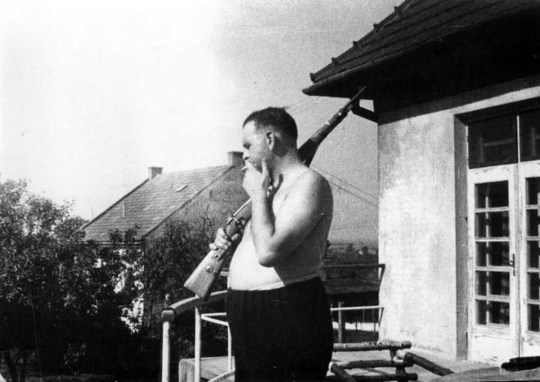

These are some facts and curiosities about Amon Göth, the butcher of Płaszów:
He was born on 11 December 1908 in Vienna, from a wealthy Catholic family operating in the book publishing sector.
He dropped out of school at the age of 17 to pursue his interest in radical right-wing ideas.
He joined the local youth section of the Austrian Nazi Party in 1925
His decision to join the party at this early stage meant that he was considered an Alter Kämpfer (Old Fighter), that is, one who had joined the party before the accession of Adolf Hitler to the position of Chancellor of Germany.
Göth joined the Austrian SS in 1930 and gained full membership in 1932 after a two-year application period. It was named SS-Mann with the number SS 43.673
Göth was assigned to the SS-Totenkopfverbände ("Death's Head unit"; concentration camp service). His first assignment, starting on 11 February 1943, was to supervise the construction of the 200-acre Kraków-Płaszów concentration camp, of which he was expected to command
In addition to his duties in Płaszów, Göth was the officer in charge of the liquidation of the Tarnów Ghetto
On Yom Kippur (the holiest holiday in the Jewish calendar) in 1943, Göth ordered fifty prisoners to be shot without cause.
He killed many people just because they dared to cross him - for looking him in the eye, when they should have lowered their gaze as a sign of deference - for having served him too hot soup or for not having cleaned his bathtub thoroughly.
He died on September 13, 1946.
He married twice and had at least three children.
his granddaughter Jennifer Teege wrote “My Grandfather Would Have Shot Me: A Black Woman Discovers her Family’s Nazi Past.”
He was played by Ralph Fiennes in the film Schindler's List (1993).
Sources:
Wikipedia: Amon Göth
United States Holocaust Memorial Museum ( pictures and other informations)
Hitler and his loyalist: Paul Roland
CNN ( for the part about his family.)
if you don't like it go with your life :)
I DON'T SUPPORT IN ANY WAY NAZISM, FASCISM OR ZIONISM, THIS IS AN EDUCATIONAL POST
29 notes
·
View notes
Text
THIS DAY IN GAY HISTORY
based on: The White Crane Institute's 'Gay Wisdom', Gay Birthdays, Gay For Today, Famous GLBT, glbt-Gay Encylopedia, Today in Gay History, Wikipedia, and more … May 3


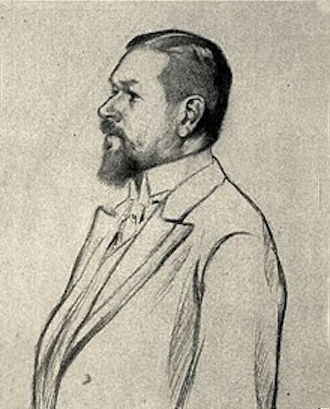
1863 – Hans von Tresckow, born in Neisse, Province of Silesia,(d.1934) was a German detective and for many years in Berlin was responsible for criminal offenses in connection with Paragraph 175.
He was the oldest of seven children. His father Karl von Tresckow (1829-1889) was a Prussian lieutenant general. Tresckow attended grammar school, most recently in Darmstadt , where his father had been transferred. Tresckow did his military service from 1883-1884 as a one-year volunteer and later became a reserve officer. Financed by a family scholarship, he began studying law and economics, first in Koenigsberg, then in Berlin, where an influential uncle introduced him to the highest circles.
In 1889 Tresckow applied to the police and in 1892, after completing his training, joined the criminal police (Germany). Due to lack of money, he also gave private lessons and wrote crime and hunting stories under the pseudonym Hans von Buckow for various magazines such as Westermanns Monatshefte. In April 1894 he married.
As a commissioner Tresckow was from 1896 in Inspectorate B under Leopold von Meerscheidt-Hüllessem, whose position he took over after his death (by suicide). This inspectorate was also responsible for the homosexuality-related crimes, literally for "pederasty and related extortion".
Allegedly Tresckow hadn't even known that there were homosexuals before he worked there. In his memoirs he wrote: "It was my duty to deal more closely with this matter, which I personally found to be normal only to be unsympathetic to people." For almost 30 years he was in close contact with the doctor, Sex researcher and co-founder of the homosexual movement Magnus Hirschfeld, and the two men respected each other. In 1922 Tresckow wrote to Hirschfeld: "The fact that I take a less favorable position than you when assessing homosexuals is probably due to the fact that you, as a doctor, have met more valuable personalities than I as a police officer."
The gay movement was in close contact with Inspectorate B, so victims of extortion in connection with Section 175, which criminalized sexual acts between men, were advised to contact this inspectorate. Von Meerscheidt-Hüllessem had promoted this development, and so did Tresckow. Tresckow even received an annual special allowance for a separate office in his apartment, where he advised victims after work.
In 1920 Hirschfeld certified that Tresckow had saved "hundreds of homosexual people from despair and suicide". On the other hand, the number of "pederasts and blackmailers" recorded by the police, later known as the Pink List, rose from 1900 to 1918 to over 1,000 people.
Although Tresckow was for the abolition of the paragraph because he recognized the problem of extortion, reported extortions often ended with the conviction of the perpetrator and victim. The victims came from all walks of life and the extortion often resulted in suicide. During Tresckow's term of office, the scandal trials in connection with the Harden-Eulenburg affair (1907-1909) took place. In the murder of Friedrich Ferdinand Mattonet, he appeared in court as an expert witness.
Tresckow's department was supposed to fulfill three functions — fighting criminal homosexual acts in accordance with Paragraph 175, preventing male prostitutes and homosexuals from appearing too publicly in the streets, and protecting homosexuals from extortion and other crimes — but ultimately the homosexual department only acted as a state monitoring and repression body towards homosexual prostitution. On the other hand, “pederast balls” with sometimes more than 1000 participants were held in Berlin during the German Empire and tolerated by the police. Tresckow's predecessor in office, von Meerscheidt-Hüllesem, even attended these events and had dances performed.
In 1914 Tresckow went to the First World War as a volunteer . Wounded, he said goodbye to the army in 1919 . He moved with his wife to Rinteln , where he wrote his memoirs. He asked Magnus Hirschfeld for a review: "I have emphasized in various places in my book that I have found decent characters among homosexuals". Hirschfeld praised the book, but criticized Tresckow's attitude that homosexuals are not suitable for responsible positions in the civil service, also because he believed that he had discovered a "lack of national feeling" in many homosexuals: "They feel international and feel like cosmopolitans." The book, published by his son, became a bestseller.
Unfortunately, the files with the data of the homosexuals compiled by his department were subsequently used by the National Socialist authorities to systematically pursue these homosexual men.

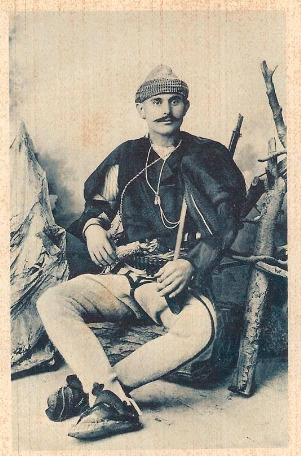
1877 – Baron Franz Nopcsa von Felső-Szilvás (d.1933) was a Hungarian-born aristocrat, adventurer, scholar, and paleontologist. He is widely regarded as one of the founders of paleobiology and Albanian studies. He was a great scientific mind that came to a tragic end with the murder of his male lover and his subsequent suicide.
Nopsca was born into a wealthy Hungarian noble family in Transylvania, which was then part of the Austro-Hungarian Empire.
While still a teenager, Franz and his sister found some dinosaur fossils on their family estate, a discovery that sparked Franz’s life-long interest in paleontology. He became famous for these hundred million year old fossilized remains, and his subsequent research and scholarly publications led him to be considered the father of modern paleobiology.
Nopsca subsequently traveled south to Albania, then part of the Ottoman Empire, to conduct some digs for more dinosaur fossils. While there he became enchanted by the countryside and culture of the Albanians, and he soon dedicated himself to liberating Albania from the Ottomans in an effort to establish Albania as an independent country. Using his personal fortune to acquire weapons, he organized rebellious forces and led the Albanians in fighting against the Turks. At the end of the First Balkan War, Albania became an independent state in 1913 under the Treaty of London.
This new Albania was to be a kingdom, but there was no native dynasty. In order to secure the recognition of the nation by other European countries, the Albanian Congress of Trieste was convened in 1913 to choose a nobleman to become king. Nopsca put forth the proposition that he would be an ideal choice as king, because he was of noble birth and had strong ties to the Austro-Hungarian Empire. However, the fact that he was homosexual and made no effort to hide it thwarted his dream from becoming reality.He flounced around in a black velvet cape and made his interest in men obvious.
The Albanians quite naturally expected their king to marry and produce heirs, but Nopsca tried to use his sexual orientation to advantage. He suggested that Albania sell the title of “Queen of Albania” to the highest bidder, since he did not care which woman he would marry and sleep with. He agreed to produce an heir with whomever paid the highest price and use the money for badly needed infrastructure, such as building roads and hospitals. Although the Albanians were grateful for his role in liberating the people from the grip of the Turks, he was passed over as their king. Realizing he had no chance for success, the Baron withdrew his bid to become Albania's new king, and from that moment his life took a nosedive.
Transylvania, which had been part of Hungary for nearly a thousand years, was annexed by Romania after World War I, and Baron Franz lost his family estate and fortune in the transfer. For the first time in his life he needed to support himself, so he and his long-time Albanian lover/secretary, Bayazid Doda, moved to Vienna, where the Baron taught paleontology at the university.
He lapsed into severe fits of depression. His financial humiliation was so extreme that by the end of his life his household servant had not been paid for four months. To cover his debts, he sold his fossil collection to the Natural History Museum in London, which caused his depression to worsen.
Finally, after selling many of his prized books in 1933, he drugged Doda’s tea and fatally shot first his lover and then himself. In a letter left for the police, he explained that his decision to commit suicide was the result of a nervous breakdown. His letter stated:
“The reason that I shot my longtime friend and secretary, Mr. Bayazid Elmas Doda, in his sleep without his suspecting at all is that I did not wish to leave him behind sick, in misery and without a penny, because he would have suffered too much.”

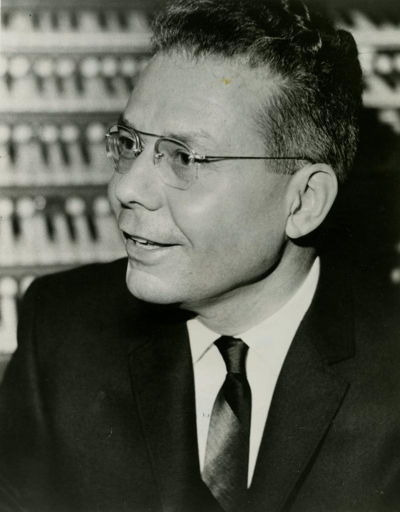
1912 – Virgil Fox (d.1980) was an American organist, known especially for his flamboyant "Heavy Organ" concerts of the music of Bach. These events appealed to audiences in the 1970s who were more familiar with rock 'n' roll music and were staged complete with light shows. His many recordings made on the RCA Victor and Capitol labels, mostly in the 1950s and 1960s, have been remastered and re-released on compact disc in recent years. They continue to be widely available in mainstream music stores.
During the Second World War, Fox enlisted in the Army Air Force and took a leave of absence from Brown Memorial Presbyterian Church in Baltimore where he was organist and the Peabody where he taught. He was promoted to staff sergeant and played various recitals and services. After having played more than 600 concerts while on duty, he was discharged from the Army Air Force in 1946.
From 1971 until 1975, Fox performed his famous "Heavy Organ" concerts in auditoriums, popular music concert halls, and other nontraditional organ music venues, touring around the United States with an electronic Rodgers Touring Organ and, later, a custom-designed Allen Organ.
Virgil Fox was one of the rare organists to perform on nationally televised entertainment programs in the 1960s and 1970s, such as The Mike Douglas Show, The Ed Sullivan Show, and CBS Camera Three, bringing organ masterworks to mass audiences as no other organist has done before or since.
His last commercially released recording was made at his farewell Riverside Church concert on May 6, 1979. Fox's 50th year of performing began when he appeared with the Dallas Symphony in September 1980, in what was to be his final public performance. One month later, he died in Palm Beach, Florida of prostate cancer, for which he had undergone unsuccessful surgery in 1976.Virgil Fox (The Dish): An Irreverent Biography of the Great American Organist by Marshall Yaeger and Richard Torrence (2001), a compendium of reminiscences by contemporaries of Virgil Fox, included an unpublished autobiography by Ted Alan Worth, a student of his. Worth wrote of Fox's sexual orientation, "To anyone who was gay, there was no question as to what Virgil was." One review of The Dish stated, "Fox's homosexuality, and its implications on his life, is dealt with in admirably straightforward terms."

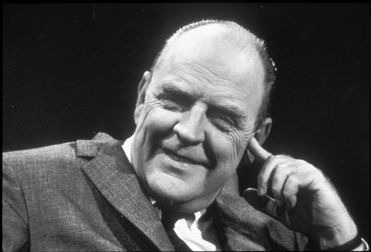
1913 – William Inge, American playwright (d.1973); An American playwright and novelist, whose works typically feature solitary protagonists encumbered with strained sexual relations. In the early 1950s, he had a string of memorable Broadway productions, and one of these, Picnic, earned him a Pulitzer Prize. With his portraits of small-town life and settings rooted in the American heartland, Inge became known as the "Playwright of the Midwest."
The Last Pad is one of three of Inge's plays that either have out gay characters or address homosexuality directly. The Boy in the Basement, a one-act play written in the early 1950s, but not published until 1962, is his only play that addresses homosexuality overtly, while Archie in The Last Pad and Pinky in Where's Daddy? (1966) are Gay characters. Inge himself was closeted.
Inge's The Last Pad premiered in Phoenix, Arizona in 1972. Originally titled The Disposal, the world premiere of The Last Pad was produced by Robert L. (Bob) Johnson and directed by Keith A. Anderson through the Southwest Ensemble Theater. The production starred Nick Nolte and included Jim Matz and Richard Elmore (Elmer). The production moved to Los Angeles and opened just days after Inge committed suicide.
During the early 1970s, Inge lived in L.A., where he taught play writing at UC Irvine. His last several plays attracted little notice or critical acclaim, and he fell into a deep depression, convinced he would never be able to write well again. He committed suicide by carbon monoxide poisoning in 1973.

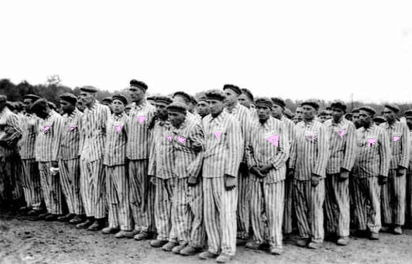
Homosexual Prisoners at Buchenwald
1945 – Died: Heinrich Roth, a few days after the death of his long-time partner, Carl Bruns. These were two ordinary homosexual German men who fell victims to the Nazi regime.
The gay pogrom in Germany started in the summer of 1937. The Gestapo launched a systematic crack-down in the mid-1930s, actively entrapping gay men. The Nazis created a vicious protection racket that allowed gay bar owners to remain in business, on condition that they handed over names of customers on a regular basis.
Landlords were bribed to inform on tenants. If someone at work didn't like a bachelor co-worker, all he had to do was to go to the Gestapo and suggest a sexual advance had been made, and the next day the co-worker would be gone. It mattered little whether there was any truth to the allegations.
In the city of Hamburg, Gestapo men in leather trench coats entered the city's most famous department store, Der Alsterhaus, during business hours and rounded up about 40 gay employees, who were hauled off in vans waiting out on the street. Raids occurred with growing frequency in the late 1930s.
What followed were weeks and months of 'protective custody' and transfers to mental asylums for 'curative treatment' and eventual sentencing to imprisonment in concentration camps. Many were 'offered' castration, with a vague promise of leniency, as an alternative to imprisonment.
With Prussian thoroughness, the Nazis documented every detail of the lives of those they rounded up. Those documents provide chilling insights into a hitherto unknown story.
After German unification, hundreds of thousands of case histories were released and historians have spent the least few years sifting through them. Their findings are still just being published, and have shocked even those historians who knew that atrocities had occurred, but were surprised by the extent of them.
Among these targetted gay Germans were Carl Bruns and Heinrich Roth, a gay couple who ran an upmarket men's clothing shop in central Hamburg, right across the street from Gestapo headquarters.
Bruns and Roth were arrested in 1940 and, after months of pre-trial detention, they were sent to concentration camps near Hamburg. By some miracle, both men survived until spring 1945, when the camps were being liberated by Allied forces.
But it was then that the final tragedy struck.
Auschwitz was liberated by the Red Army in early 1945, and the pictures of skeletal camp inmates shocked the world. In response, Heinrich Himmler issued an order to all camp commandants that they were to ensure that no camp inmates should ever fall into the hands of Allied forces. He didn't specify what they should do, leaving it in the hands of camp commandants.
Some commandants at Dachau and other camps began gassing all surviving inmates so that none would be left alive. Others began evacuating their inmates.
Thus Bruns and Roth were forced to leave their camp near Hamburg on a forced march to the Baltic Sea, 100 kilometers (62 miles) away, where the converted cruise liner Cap Arcona was at anchor.
The Allies were advancing on all fronts. Everyone knew that the war was over. All the inmates had heard the news. British forces had dropped leaflets saying they would be in Hamburg within hours.
And yet these men were sent on a death march to the sea. Stragglers were machine-gunned to death. Others collapsed and died of exhaustion. Bruns died along the way. Roth made it to the Baltic Sea docks where the Cap Arcona was waiting and he was herded aboard along with thousands of other inmates. Two other ships were also used in this way, the Thielbek and the Athen.
The British RAF was conducting intensive air raids to pave the way for ground forces, which were only a few miles away. RAF fighter-bombers had been told that Nazi officials were seeking to flee Germany aboard a big ship disguised as a refugee vessel.
On 3 May 1945, four days after Hitler's suicide but four days before the unconditional surrender of Germany, the RAF planes came in and bombed and strafed the Cap Arcona, setting it ablaze and sending it to the bottom. Those inmates who managed to dive into the water were either killed by the bombs and strafing from the planes or else were machine-gunned by Gestapo men as they tried to climb ashore.
A handful found shelter in reeds along the shore and were found shivering in the water by British soldiers a few hours later. Roth was not among them.
There were 4,500 prisoners on board the Cap Arcona, 2,800 prisoners on board the Thielbek, and 1,998 prisoners on board the Athen. 350 were rescued from the Cap Arcona, 50 were rescued from the Thielbek and all the 1,998 prisoners from the Athen survived. A total of 7,500 people were killed in the air-raid. The British who were seen as potential rescuers by the concentration camp prisoners turned out to be their unwitting excecutioners, although there is evidence to suggest that the SS planned to sink the Cap Arcona, and the other two other ships, to 'destroy the evidence' and remove potential witnesses to their atrocities.
According to documents at the Dutch Institute of War Documentation (NIOD), the government of Sweden had warned the British government that prisoners were aboard the ships. The British government is keeping its documents relating to the attack on the three ships closed until 2045.

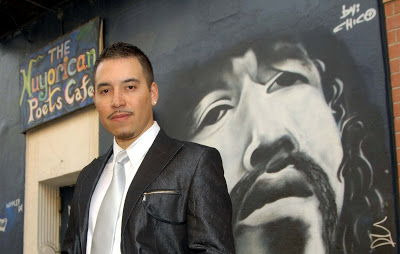
1971 – Emanuel Xavier is an American poet, spoken word artist, novelist, editor, and activist born and raised in New York City, in the Bushwick area of Brooklyn. Of Puerto Rican and Ecuadorian ancestry, he emerged from the neo-Nuyorican spoken word movement to become a successful writer and advocate for gay youth programs and Latino gay literature. Once a street hustler and drug dealer, he has conducted spoken word poetry workshops and produced benefits and events for youth organizations around the United States.
Xavier's father abandoned his mother after learning she was pregnant. At the age of three, Xavier was the victim of child sexual abuse by a relative. At age 16, he came out to his mother and was thrown out of his house. Soon after, he became a hustler. He then attended St. John's University (New York City) for several years, dropping out after receiving his associate's degree in communications. He worked for a local drug dealer and made a living by selling drugs at popular New York City gay nightclubs, including The Sound Factory and Roxy NYC. Later, after leaving the club scene, he became employed at a bookstore where he discovered his passion for writing and turned his life around. He has said that he viewed poetry as an "outlet to unleash pain and anger."
Xavier self-published his debut poetry chapbook, Pier Queen, in the fall of 1997 through his own independent publishing house, Pier Queen Productions.
Regarding his career, he has been quoted to say,
"I think at the beginning it was about me, about sharing my story. But as it evolved, it became more about the larger picture, hoping to inspire others not to follow that path, that it wasn't the only way to go if you were gay, a person of color, and thrown out because you were gay. That it wasn't the only option."
In October 2005, Xavier was brutally attacked by a group of about twenty young men in New York City, in the Bushwick area of Brooklyn. Despite various rumors about the attack—some suggested it stemmed from his granting the Latin Kings gang permission to publish one of his poems, "Waiting For God", which (ironically) dealt with police brutality while others suggested it was simply another gay bashing—Xavier believed the crime was a random act of violence. He later captured his experience in the poem "Writer's Block".


2013 – After same-sex marriage legislation passes in both houses of Rhode Island’s legislature, Governor Lincoln Chafee signs it into law. The new law, legalizing same-sex marriage, goes into effect on August 1, 2013.


17 notes
·
View notes
Note
Sorry, for these constant ranting about African and black American culture
It just sucks look at history as a black American at times. There no ancient kingdom or empire, like Han, Gupta, and Roman to call back to. No Mythos with great epics like Hellenism or Hinduism where I can see myself in.
No great warriors that might have shared your face and people use as inspiration in media. No great battle like the battle of Thermopylae for people recreate again and again
No great leaders like Alexander the Great, Ashoka the Great, Julius and Augustus Caesar that change the course of history
As soon as January and February ends, seemly everyone forgot your people history.
Will we be remember when mankind enter interstellar?
Sorry maybe my borderline suicidal depression kicking in. Despite all the diversity push, has black Americans done anything beyond fighting slavery and racism? So we still have to hijack other people history and pop culture? Are any of our stories worth being told by media?
Or are we nothing but a sad pitiful group? Ugh sorry for making you my therapist
It just sucks look at history as a black American at times. There no ancient kingdom or empire, like Han, Gupta, and Roman to call back to. No Mythos with great epics like Hellenism or Hinduism where I can see myself in.
Check the Nubians and southern kingdom of Egypt there were black Pharaohs and dynasties those are recorded and attested by non Egyptian sources.
As for the Mythos Rome took a bunch of them from conquered lands, much like Greece did, like Babylon and Assyria did, Egypt too, oh and Hindus did the same thing. Easier to keep a population happy if you point out how our gods and your gods are the same guys just with different names.
No great leaders like Alexander the Great, Ashoka the Great, Julius and Augustus Caesar that change the course of history.
They existed, we just don't have any records of who they were, nothing concrete at least, gotta decide for yourself how faithful the oral tradition is.
Or you can treat it like folklore, doesn't mean there's not some truth to it, exaggerated is all.
As soon as January and February ends, seemly everyone forgot your people history.
Will we be remember when mankind enter interstellar?
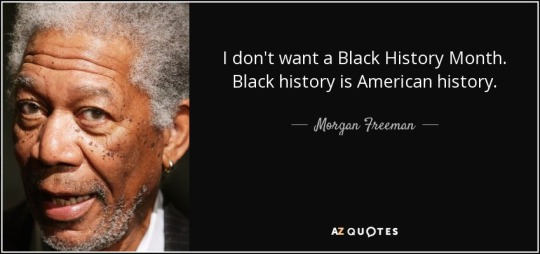
No need to keep them separate, just because a skin colour isn't the focus doesn't mean people forget, stuff like the 'black national anthem' is divisive, it's bringing back segregation saying we have a different national anthem than you. No if you're Americans you've got the one, go start your own country if you want a different one.
Haiti looks like it's about to reset try there.
If you want some heroes that look like you, meet the Harlem Hellfighters
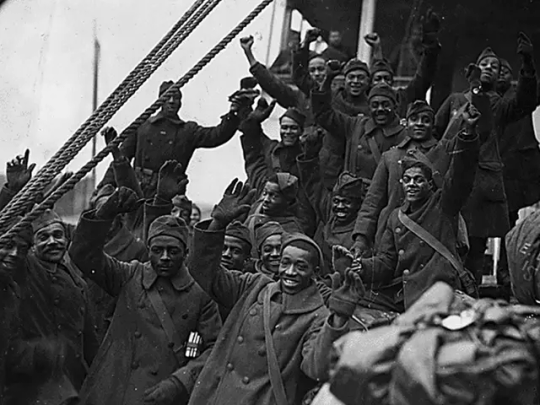
To our eternal shame the US wasn't in the business of giving medals to black soldiers in WW1 not so much in 2 either, France however was.
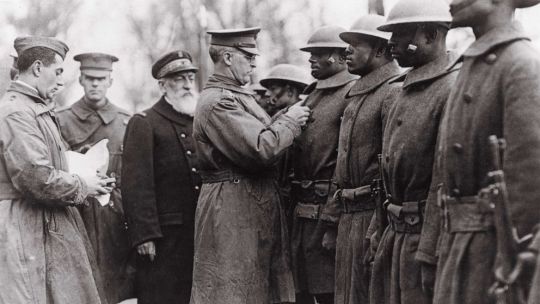
Sergent Johnson here managed a Coup De Gras for valor in the battle that got him named "The Black Death" it's always the black something isn't it, we back home finally rectified the travesty that had him overlooked for the Medal of Honor in 2015, he more than earned it, wish he could know how many people look up to him now.
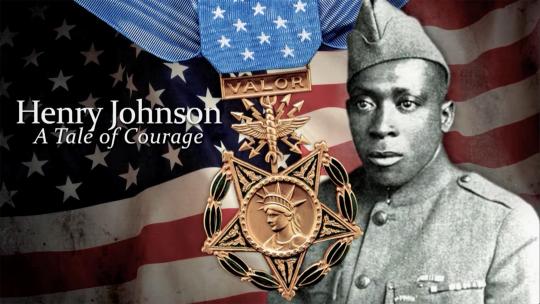
I do hope he saw this after he got home at least, I'd have that on my wall lmao.
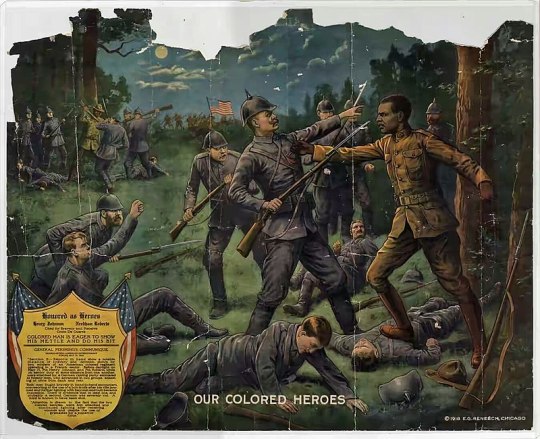
Legacy section of his Wikipedia page has lots of things on it, but this I think would be the thing I would be proudest of,
In 1919, co-founder of the American Legion Theodore Roosevelt Jr., son of former United States President Theodore Roosevelt, referred to Johnson as one of the "five bravest Americans" to have served in World War I.
One of the good Roosevelt's, and I'm gonna guess this got to him too, since he was still around.
You need a warrior here's one, he led and sacrificed, he's a good one to look up to, refused to let his buddy be taken captive at great personal risk after they'd fought of 12 Germans.
Need another group of warriors, we've got the Tuskegee Airmen.
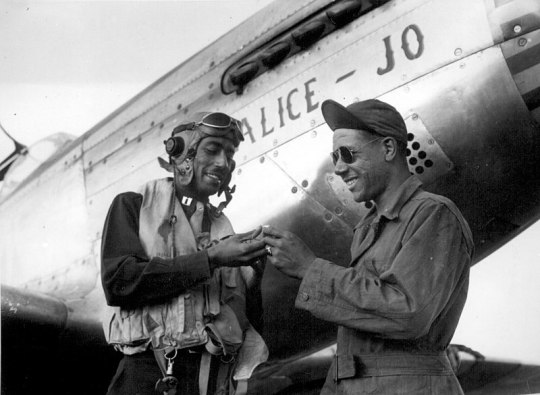
Made a lot of white (fighter) pilots mad because they were that good at their job, white bomber crews loved them they saw the red taifin on the P-51 their hope for surviving the mission went way up, because they were that good at their job.
Look them up too if you haven't before, check out the movie "Red Tails" Black writers adapted a story by one of them about a damn fine group of pilots, I enjoyed the movie watched it a bunch of time when I was living in Florida because it was on one of the movie channels the hotel I was living in carried.
You've got warriors who fought great battles that you can look up to though, even more so because they knew what life was like back home and how they were treated and would be on their return, and they fought anyhow.
Admirable men worthy of being looked up to by anyone really. At least for this service which is what counts for me right now.
Will we be remember when mankind enter interstellar?
How could humanity forget these men, and so many other incredible human beings that worked for the betterment of humankind in their own ways?
__________
As a aside, Max Brooks got together with a artist named Caanan White who I don't know anything about but they did a fictional graphic novel about the Harlem Hellfighters and it looks pretty dang cool, so you may want to look into that at some point too.
18 notes
·
View notes
Text



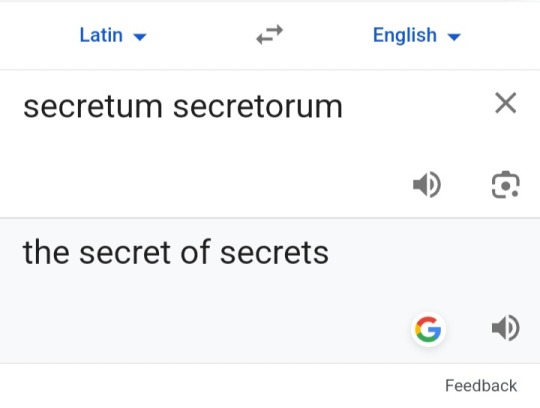
> > The A∴A∴ (/ˌeɪˈeɪ/ ay-AY) is a magical organization described in 1907 by occultist Aleister Crowley. Its members are dedicated to the advancement of humanity by perfection of the individual on every plane through a graded series of universal initiations. Its initiations are syncretic, unifying the essence of Theravada Buddhism with Vedantic yoga and ceremonial magic. The A∴A∴ applies what it describes as mystical and magical methods of spiritual attainment under the structure of the Qabalistic Tree of Life, and aims to research, practise, and teach "scientific illuminism". A∴A∴ is often held to stand for Argenteum Astrum, which is Latin for Silver Star;[1] however, see the section on Name below. [from wikipedia]
> > Magick Without Tears, a series of letters, was the last book written by English occultist Aleister Crowley (1875–1947), although it was not published until after his death. It was written in 1943 and published in 1954 with a foreword by its editor, Karl Germer.

make of this what you will
10 notes
·
View notes